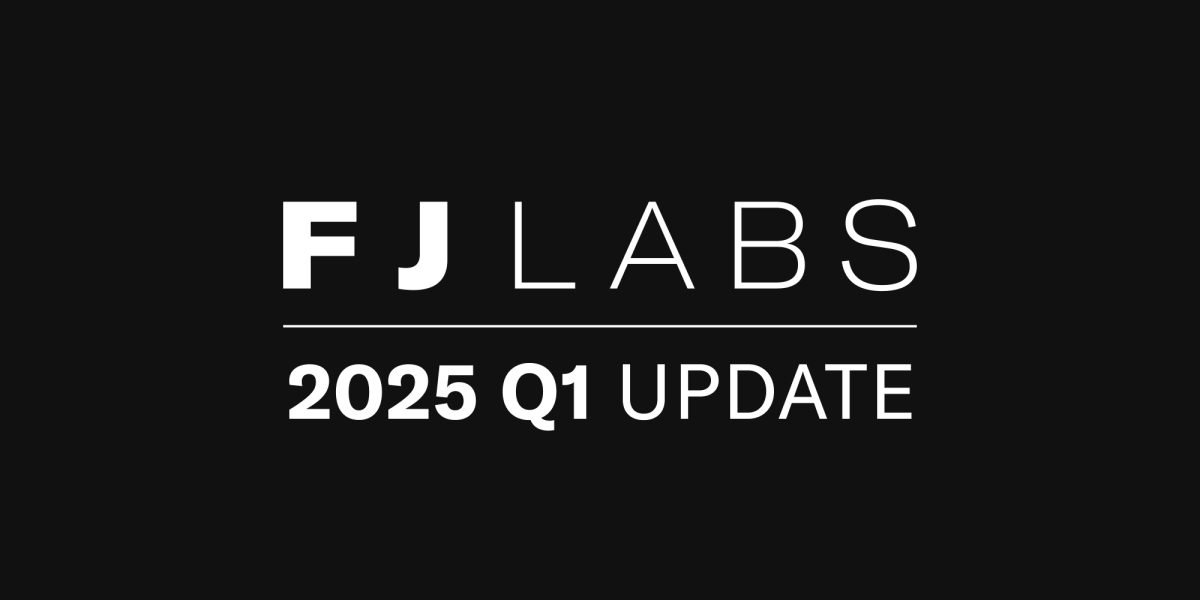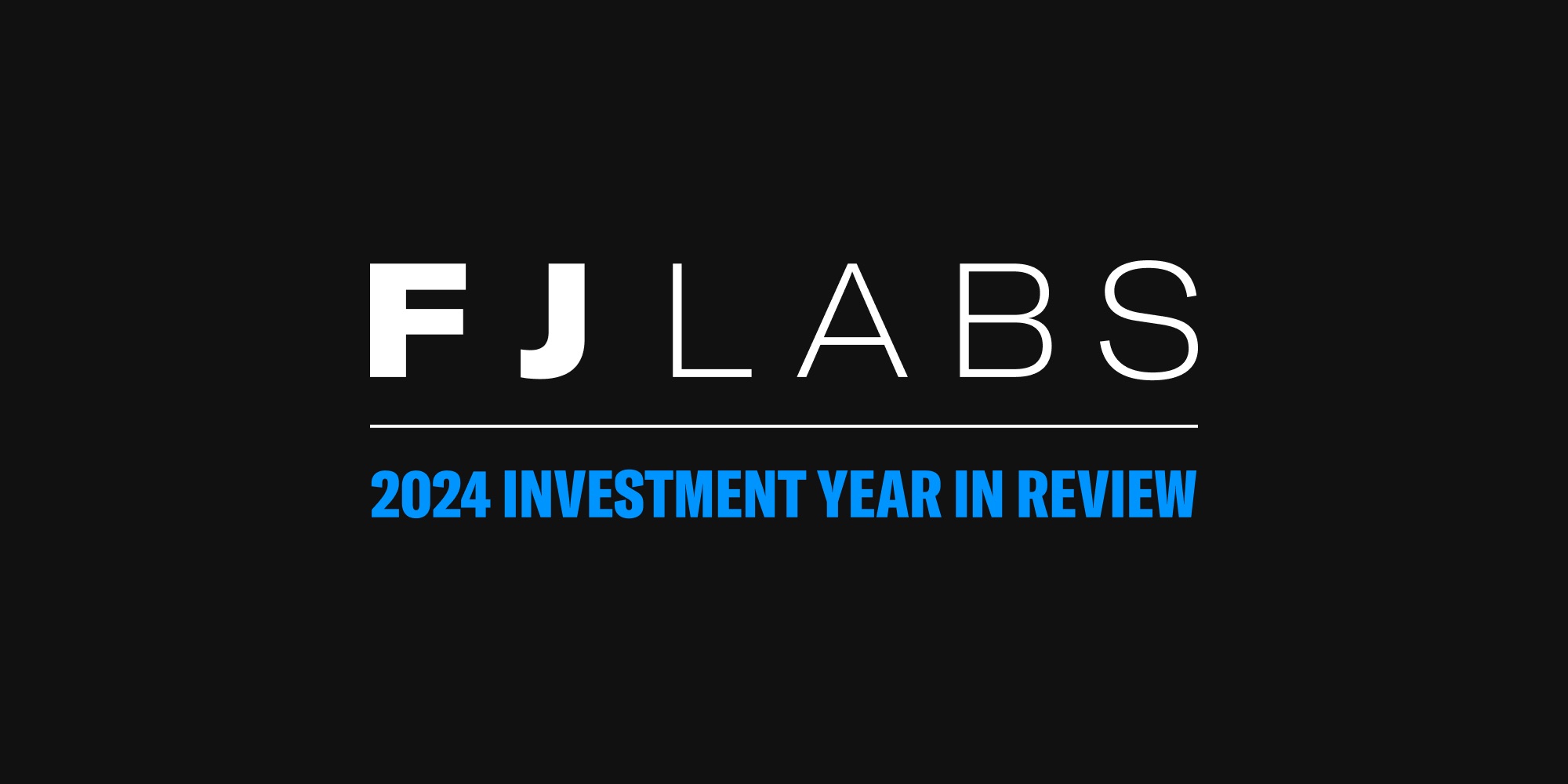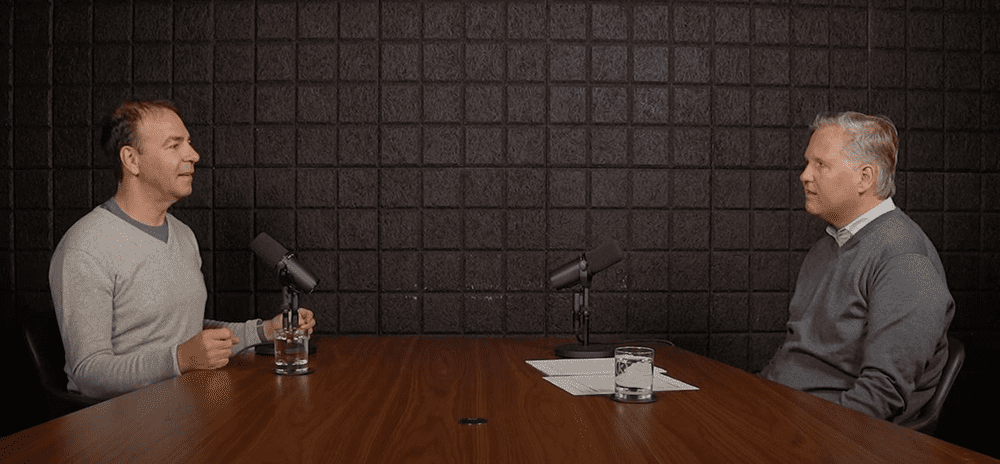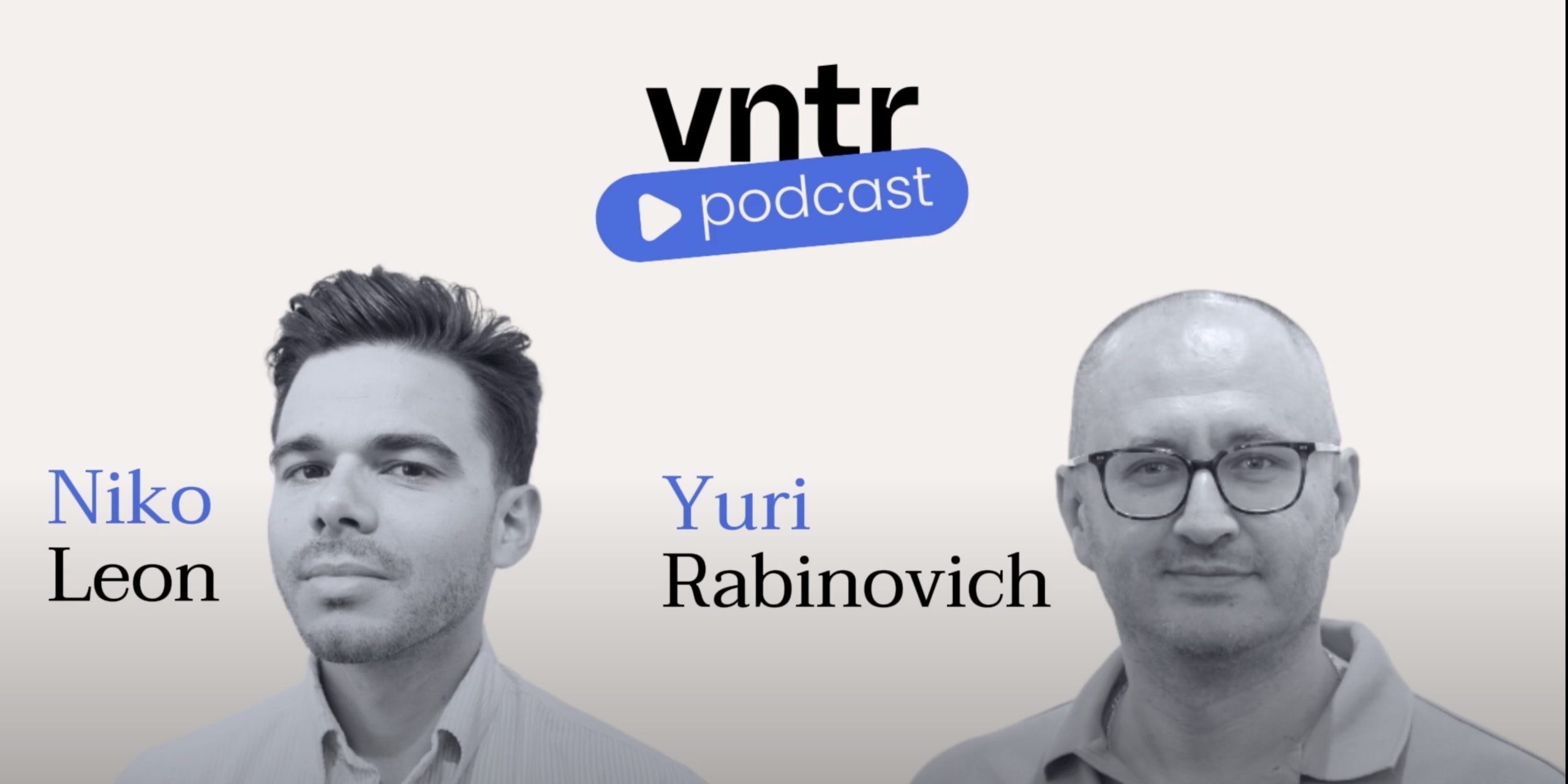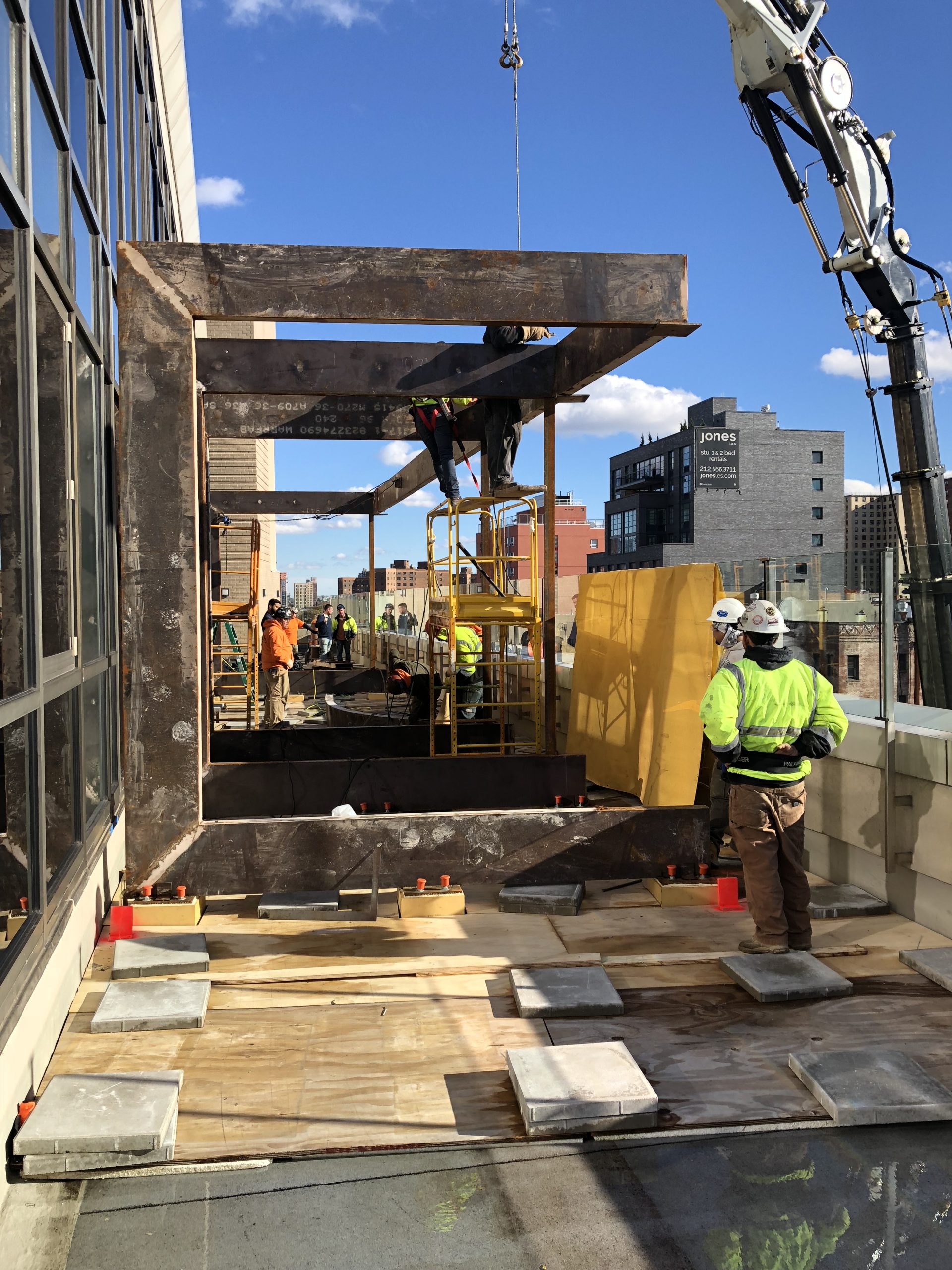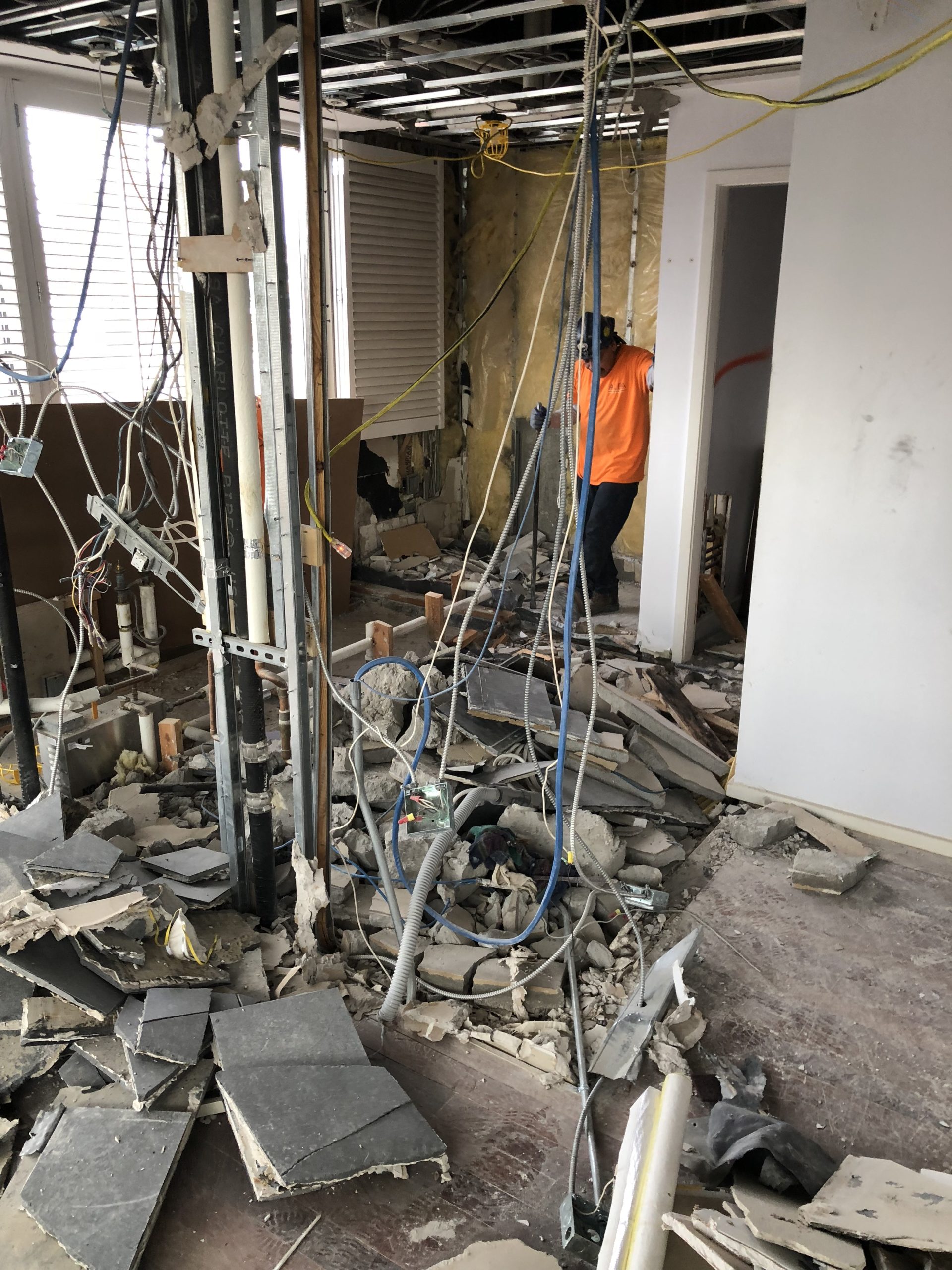我已经有一年多没有参加过 “问我任何问题 “环节了,这让我提出了很多问题,话题非常广泛:宏观、市场、人工智能、筹款、财富管理、教育、海岛购物、印度、如何去掉口音、探险旅行、气候技术、风险投资的现状等等。
以下是我们讨论的关键问题:
- 00:01:17 地缘政治变化、关税和特朗普政策将如何影响世界?
- 00:06:14 寻找和说服投资者的关键诀窍是什么?
- 00:08:44 您认为时尚市场的未来会怎样?Farfetch等平台的衰落对其有何影响?人工智能在其中扮演什么角色?
- 00:13:19 您如何看待当前的最佳投资机会?鉴于目前股市下跌,股市是有吸引力还是仍然被高估?不久前,我读到了您的非传统财富管理方法。您现在会如何分配 1000 万美元?
- 00:19:21 我们的月收入约为 1.5 万,我们可以进行种子前期融资吗?
- 00:21:14 考虑到人工智能的影响,您建议孩子们接受什么样的教育、进入什么样的学校、攻读什么样的大学学位,才能为10年后的就业市场做好最充分的准备?他们应该开始培养哪些技能?
- 00:26:46 您收到过的最好的冷冰冰的入站电子邮件是什么?
- 00:29:39 如果你今天完成了学业,你会加入什么样的工作或公司才能更好地锻炼自己,以便日后创办一家科技初创公司?如果你的目标是学习如何有强度、有条理地工作,那么麦肯锡或投资银行这样的地方还有意义吗?
- 00:32:40 作为一名刚从法国毕业、拥有金融学士学位背景的学生,您认为当今哪些国家在经商便利性、人际网络、潜力等方面提供了最多的学习机会?
- 00:33:34 什么时候推出 Fabrice AI 的更新版本?我怎样才能在法国的科技界建立网络?
- 00:38:30 法布里斯,接下来有什么激动人心的旅行吗?你个人最喜欢的人工智能用途是什么?
- 00:42:39 如果在我所处的类别中存在现任者,是否还有机会进入市场?
- 00:45:51 是什么让您决定选择特克斯和凯科斯群岛而不是其他岛屿?
- 00:52:57 你最喜欢印度的哪个地方?
- 你的法国口音是怎么消失的?你有什么秘诀?
- 01:00:52 您的气候相关投资机会目标清单上有哪些?
- 01:02:55 你完成了你想完成的穿越格陵兰岛的长途徒步旅行吗?
- 01:06:03 如果你今天正在创建一家像 Zingy 这样的科技公司,考虑到有很多创始人在 5 亿美元的退出中几乎没有赚到钱的例子,你还会筹集风险投资资金还是引导它发展?
- 01:08:39 对于找到产品市场契合点但在 2023 年耗尽资金却 “幸存 “下来的家庭护理市场创始人,您有什么建议?
- 01:10:55 人工智能尤其是消费者使用人工智能的未来大趋势是什么?
- 01:13:12 对于个人或小型零售业,您认为目前哪些人工智能工具值得付费订阅?
- 01:13:49 您对创收前初创企业创始人的要求是什么?
- 01:14:34 风险投资人在看到项目介绍时最大的障碍是什么?最大的 “绿旗 “又是什么?在与风险投资人进行冷接洽时,什么是红旗?
- 01:16:17 您能谈谈交叉基金的机会吗?
- 01:18:43 您对印度风险投资机会有何看法?
- 01:19:29 我应该聘请首席技术官还是首席财务官?
- 01:20:23 您如何看待像艾伦(法国独角兽公司)这样的公司未来的发展前景?
- 01:21:15 从您的角度来看,如今最容易销售的技能或服务类型是什么?
- 01:22:20 2030 年比特币价值几何?
- 01:26:35 您如何看待世界硬币等倡议?
- 01:26:43 我喜欢多米尼加共和国的枪战故事。你还有其他令人肾上腺素飙升的冒险故事吗?
- 01:30:27 您更喜欢重复创始人还是首次创始人?
- 01:32:22 为什么时尚市场的融资如此困难?
- 01:33:28 在你看来,创始人最重要的特质或技能是什么–情绪稳定、能够应对极端压力,还是其他什么?
- 01:36:11 你是否愿意在纽约共进午餐,这样我就可以在 45 分钟内提出所有问题?
- 01:37:13 是什么让小众市场突围而出,走向全球?
- 01:39:44 人工智能对人类有危险吗?它会增加失业率吗?各国是否应该制定规则防止这种情况发生?我们能掌握可能超越我们的东西吗?
- 01:46:46 您如何看待振动编码趋势或真正的转变?
如果您愿意,可以通过嵌入式播客播放器收听本期节目。
除了上述 YouTube 视频和嵌入式播客播放器,您还可以在iTunes和Spotify 上收听播客。
文字稿
大家好。希望你们这一周过得愉快。我做 “有问必答 “节目已经一年多了,当然,世界上发生了很多变化。人工智能、政治、地缘政治以及整个世界都发生了翻天覆地的变化。所以,我想是时候回答你们的问题,评估一下我们的现状,然后看看事情会怎么发展。
那么,话不多说,我们开始吧。欢迎收看第 48 集有问必答
所以,像往常一样,请随时在聊天室里提问,我会在问题发布后实时回答。为了让我们尽快开始,我将从预先提出的问题开始。人们在我发送时事通讯后给我发电子邮件说,嘿,你们想让我谈哪些话题?
因此,我想先问一下您对所有地缘政治变化、关税、特朗普政策将如何影响世界贸易以及这将创造哪些机遇的看法。如果您愿意分享,那就太好了。因此,很明显已经发生了很多变化,所有的恐怖政策等都造成了很多混乱。
我的意思是,有趣的是,当特朗普当选时,我想很多科技界的人也许都希望,嘿,市场会重新开放,对吗?过去几年的问题是,除了人工智能之外,没有真正的投资。
压缩幅度非常大,没有退出,没有并购,没有首次公开募股。并购主要受阻于反垄断法规,如 SCC、FTC、FCC,而 IPO 只是 IPO 市场和 IPO 窗口的关闭,所以我们希望它能重新开放,事实上,我们的投资组合中有几家公司,如 Klarna,已申请在 25 年初上市。
但由于关税问题、市场嘈杂、不确定性以及对未知可能发生的事情的恐惧,首次公开募股的窗口关闭了。他们至少推迟了首次公开募股,不知道是否永远推迟了。因此,事情并没有像我们希望的那样发展。现在要回答的问题是,我认为到底发生了什么?
一般来说,我在做出决定时,会尽量让决策者受益,同时假定他们不是白痴。如果我假设他们不是白痴,那他们为什么要这么做呢?于是我苦思冥想,想出了一个合理的潜在解释:为什么这样做是有道理的?
因此,我认为特朗普将自己视为首席和平缔造者。他想在乌克兰实现和平。他想在中东实现和平。我认为他所面临或正在面临的问题是,他觉得,听着,没有人给过普京一个退出战略,对吗?就像如果普京做出任何让步,离开乌克兰时一无所获,也许他自己的安全就会受到威胁。
我们能否创造一种环境,让他们有机会做出让步,分一杯羹?因此,有一种思考方式,我想,嘿,也许我们正在假装与我们的盟友战斗。我们也许不告诉他们,因为如果你告诉他们,所有的切片、泄密等都会曝光,我们就会对所有盟国征收关税,以创造更多的共同点,让他们有机会谈判并做出让步,从而获得最后的利益。
现在,我认为这是一个糟糕的策略,因为我不认为你想与不可信任的普京谈判。但如果这是你的初衷,也许你可以试试,如果行不通,你知道吗?你会从欧盟、加拿大、墨西哥那里得到象征性的让步。
也许你会把所有东西都卷回去。所以我希望这些事情都是暂时的。在政治世界里,问题是暂时的,也许是一两年,而不是三个月。与此同时,要回答具体问题,比如创造了哪些机会?很明显,你要知道,你要思考如何转移供应链,思考如何处理成本结构,你要知道,你是像我们看到的一些公司所做的那样进行离岸外包,还是将供应链转移出中国?
你知道,我们是昆斯公司的投资者,这是一个经济型奢侈品市场,他们在三年内就从零做到了十亿。他们的营业额达到数十亿美元。过去,他们从中国采购所有商品。在三个月的时间里,他们将整个供应链迁出了中国。
现在,如果最低限度标准继续对低于 800 美元的订单实行最低限度豁免,他们将受益匪浅。但即使不这样做,因为他们是成本最低的供应商,我猜他们也会继续做得很好。因此,我认为低成本、灵活的生产商,也就是世界上的初创企业将继续保持良好的发展势头。
在全球地缘政治宏观经济不确定的情况下,风险投资更难融资。风险投资人更难筹集到风险资本。在出现退出和首次公开募股之前,飞轮还没有真正打开。因此,情况依然会很复杂,但希望在未来几年里,这一切能以一种不太具有破坏性的方式发生。
这将创造机会。但我认为,颠覆者、初创企业比康明斯更有能力抓住这些机会,因为它们行动迅速,成本结构更低。让我们来看看。我们收到的其中一个问题,然后我会通过电子邮件提问。
所以,奥努尔,我就不提你的姓了,免得怎么说都不顺口。 [寻找和说服投资者的关键诀窍是什么? 因为我有一家名为 Cusinea 的初创公司。这是一个由人工智能驱动的餐厅员工在线培训平台,也是一个餐厅营销社交媒体平台。在正式推出之前,我们已经与六家餐厅建立了合作关系。目前我正在寻求投资。
我想描述一下你们目前所处的种子前阶段和种子前阶段。你知道,启动前或概念验证。老实说,你需要筹集的前五十万或一百万美元仍然是,主要是,没有多少基金专注于此。种子前期
有一些,比如 Afore A-F-O-R-E 就是一个例子。还有印度的 iSeed,我是说有一些,但非常非常少。在洛杉矶的 Amplify,大多数种子基金都是傻瓜的朋友和家人。这就好比你去找那些支持你、支持你的富裕朋友,然后说,嘿,我需要5-10万。
问题是,你知道,5 万乘 1 万、10 万乘 5 万其实就足够做种子基金了。此外,你还需要认识到,现在建立一家初创公司的成本比以往任何时候都要低。要知道,当我创建第一家初创公司时,我需要甲骨文数据库服务器、微软网络服务器。
我需要建立自己的数据中心,那是在开源之前,在 Rackspace 数据中心之前。这甚至早于云计算和现在的人工智能。如今,只要有 1.5 万美元,你就可以建立任何东西,然后你可以用筹集到的几十万美元资金来证明产品与市场的契合度。
但你的目标是获得种子级的牵引力。因此,我的目标是每月净收入达到 2 万。但如果你收取的是 SaaS 费用,你得到的是 2 万的 MRR,而不是 ARR。有了这一点,你就可以去筹集种子资金,然后你就可以去向风险投资公司筹集 2-3 百万美元,证明产品适合市场。
同样,如果你在市场上,你知道你想达到每月 15 万的 GMV。如果你有 15%的收益率,同样的事情,你有 2-30 万的净收入,你证明了产品与市场的契合度,然后你去筹集 200 万或 300 万像我们这样的人,除非你是第二次创业,除非你已经证明了你之前的种子轮投资,除非你已经用很少的上限证明了产品与市场的适度契合度。
第二个问题来自 Twitch 上的 notionXarma。 [00:08:44] 我想问一下您的想法,您认为时尚市场和时尚的未来是什么?另外,人工智能市场在其中扮演什么角色?
有趣的是,特别是在美国的时尚市场,也许让我放一个全屏,你会看到更多的问题在这里?
人工智能市场,对不起,不是人工智能,是时尚市场做得不好,对吗?Poshmark?真实的,真实的,我不知道真实的,真实的市值是多少。它的市值其实并不高,因为成本结构太高了。因此,从外观上看,时尚市场这一类的平台做得并不好。
但有一个反例。有一家公司在欧洲大受欢迎,它重新定义并重塑了这一类别。我很自豪也很高兴地告诉大家,至少在公司成立之初,我就是它的早期投资者。那家公司叫 Vinted V-I-N-T-E-D,所以叫 Vinted,目前实际上是由我在 OLX 的得力助手在运营。
他就像个修理工肯尼亚出了什么问题,他都会去解决。他们与立陶宛初创公司的不同之处在于,他们最大的市场是法国和英国。他们进行了多项创新。第一项创新是,他们不再向卖家收取 10-15% 的佣金,而是完全免费,完全免费出售,完全免费购买。
他们说,如果你是买家,如果你想选择托管、运输和付款,我们会为你做,我们会收取任何费用,2 欧元或 2 美元加 5%,每个人都会这么做。因此,他们的实际成交率为 10%。有趣的是,其中一些数字是公开的,所以我将给出上一轮的公开数字。
去年,他们的 GMV 达到 60 亿美元,净收入达到 6 亿美元。我认为他们的自由现金流达到了 8000 万左右。他们在英国的息税折旧摊销前利润率为 50%,在法国为 45%。而且他们还在不断增长。现在,他们在意大利、西班牙和整个欧洲都在增长,他们正在进军奢侈品市场。
因为他们的成本结构最低,因为他们的收货等级最低,所以他们的这种买方付费模式做得特别好。因此,时尚的效果非常好。现在,人工智能在这里扮演着多重角色。人工智能扮演的第一个角色是,Vinted 可能是第一家真正意义上的欧洲十强公司。
过去,当你在欧洲开展业务时,你就像一家法国公司、德国公司或英国公司。而当你在欧洲开展业务时,你实际上是在开设一个新的办事处,拥有一个不同的站点,而你不会在这些站点之间进行销售。因此,他们所做的就是意识到我们现在可以在欧洲以非常低廉的价格跨境运输。
因此,他们所做的是,法国的房源实际上由人工智能自动翻译,并在西班牙和意大利上市。当意大利的买家想与法国的卖家对话时,所有对话都会自动翻译。因此,房源的自动翻译、对话的自动翻译都是由人工智能完成的。
此外,人工智能还对上市流程进行了重大改进。因此,当你现在挂牌时,人工智能会识别类别、建议的物品、价格等。因此,人工智能被用来改善照片背景、提高销售率、自动处理用户之间的对话以及提高销售率。
如此巨大的颠覆性创新,时尚界却做得风生水起。顺便说一句,时尚市场领域还有其他创新,不仅仅是在买卖商品方面。我们刚刚投资了一家名为 Pickle 的公司。Pickle 是一个租赁市场。可以说,它租的是天桥,但租的是时装。在纽约,所有 Z 世代和千禧一代的女性基本上都用它来买裙子,等等。
效果非常好。因此,我认为 Vinted 和 Pickle 可能是时尚界最好的两个例子。这两家公司还将有更大的发展空间。如果 Vinted 在未来几年内成为一家市值 200-300 亿美元甚至 500 多亿美元的公司,我也不会感到惊讶。
我非常看好这项投资。我们会继续投资,尽管我们现在的估值要高得多。我们全力支持这家公司。
米奇,在 Twitch 上。 [00:13:19] 你对当前最佳投资机会有何看法?鉴于目前股市下跌,股市是有吸引力还是仍然被高估?前段时间谈到了非传统的财富管理方法。你现在会如何分配这1000万美元?
答案是,这取决于你是谁,你的生活需求是什么,以及你处于生命周期的哪个阶段,对吗?比如,如果你已经 80 岁了,投资风险投资或者你 10 年内都赚不到钱,对我来说就没有意义了。
但平均而言,我还是坚持编织,就像我投资创业课程的原因一样。我知道自己在做什么。在过去的 25 年里,我每年都能获得 30% 的回报。没有什么是我能投资的。我认为这很安全,因为科技和软件正在吞噬世界,我知道我在做什么,我有一个非常非常多元化的投资组合。
所以,我喜欢投资风险,投资科技,但我不会投资特定的创业公司,对吗?如果你刚起步,有 1 千万现金,你会想,嘿,我应该做天使投资人吗?我可能会说不,因为你没有交易流,所以你可能看不到最好的交易。
如果有的话,因为你没有交易流,你看到的可能是最差的交易。风险投资遵循一种叫做 “幂律 “的规律,顶级交易占了所有回报。因此,除非你投资了至少 50 笔交易,从而保证你能得到一些好的交易,否则你很可能会亏损。
所以,你不应该自己做天使投资。现在,如果你想给你的朋友一点钱,当然,我可能会分配。所以,如果你有机会进入像我们这样的风险基金,我们并不难进入,我会在风险基金中分配相当数量的资金。但同样,你需要考虑风险基金,每三年调用一次资金。
三年后会有另一个基金,三年后会有另一个基金,所以无论如何分配。顺便说一下,我个人的配置是 10%的国债和 T-bills,你知道,你仍然有 4% 的资金是完全安全的,这是你的现金管理,你可以用它来调用资金,等等。10%用于房地产。房地产对我来说不是投资,而是消费。这是我生活的地方,我有三套漂亮的房子,在我的情况下,其余的钱我都放在风险投资上,现在我把它放在我自己的基金里,因为我知道我在做什么。对大多数人来说,如果我的资产达到 1000 万,你的房产价值就会超过 1000 万,因为你想居住的房产价值会更高。
也就是说,你可以利用它的杠杆作用。所以,你知道,也许你可以拥有一栋价值四五百万的房子,但你可以投入股权,然后把剩下的钱投资在国库券上,你知道,10%-20%。剩下的,我还是更喜欢风险投资策略。如果你的眼光长远,就不需要现金。但我会投资基金,而且是多元化基金,比如盒子集团或我们,什么的可能会更好。
你没有这个权限是啊标准普尔500,ETF。投资它,叫它一天。再也不看了或者你知道,事实上,我不, 你看,我不看新闻。我不会看投资组合。这是要经过多年复利计算的东西。所以,如果你拥有 ETF 和标准普尔 500 指数,或者你拥有比特币,是的,我可能会有 5-10%的加密货币投资。永远不要看它。如果你想看,那就看每年的 1 月 1 日。不要看它的涨跌,除非你是一个交易者,你不应该是一个交易者。你不应该看它。因此,大多数人,我会说,我不知道,也许你去20。我,很明显,我的方式,我不觉得技术或风险投资是有风险的。
所以我,我喜欢80%的风险投资,10%的房地产,10%的现金或国库券。也许其他人应该是 30% 标准普尔 500 指数、ETF、10% 加密货币。为了简单起见,甚至可以只投 BTC。在加密货币中,比方说另外20或30,不是20在风险投资中,20在国库券中,10在房地产中,也许类似的东西。
我的意思是,你可以这样上上下下。现在,这取决于现金需求、收入、薪水等等,以及生命周期。但这是我的一个很好的想法。但我不会积极交易,也不会专门投资自己的初创公司,因为你不会有足够的资金,也不会有交易流。
好吧 我看看 Okay.让我看看下一个问题是 Sheelagh Brady。根据您的经验,您认为进入风险管理和安全领域的新平台如何利用地缘政治环境发挥自身优势?在你看来,对公司的影响应该是展示投资回报率,还是有其他战略角度,你建议在现阶段重点关注?
风险管理领域有很多公司,所以我想了解你们真正的核心差异化是什么。是你们利用人工智能降低了成本,而且做得更好,还是你们瞄准了一个非常特殊的垂直领域。我不雇用这类公司。如果是风险管理,等等,我认为,你知道,他们就像在类型的东西上撒盐。
这简直就是浪费钱。所以我可能是最不适合问这个问题的人。我可能是最不擅长问 “这是什么 “的人。但是你看,如果你刚开始启动这个过程,同样的策略也适用于我。我如何验证创业想法?我与潜在客户交谈。
我测试他们是否重视这个提议。顺便说一下,我们跟其中的 50 个人谈过,而不是 5 个人。我会说,好吧,如果我收你们这么多钱,你们愿意付钱吗?我基本上会尝试让这些试点项目进行下去,在我的产品得到市场认可之前,我不会筹集资金。
如果你需要钱,对吗?它可能更需要现金流。生活方式咨询型业务比可扩展的风险投资业务更重要。推特上的肖恩,谢谢你这么做。谢谢。我喜欢这样做。这很有趣,就像头脑风暴,看看人们,什么是在人们的心中。
但我每年都做一次。也许我会每隔半年左右做一次,在前进的基础上。
亚米妮:[00:19:21] 我们每个月大约有 1.5 万的收入,我们可以进行种子前期融资吗?哦,当然可以。Pre-seed.你说的是 GMV,即售出商品的价值,还是说你的收益率,如果你的收益率是 10%,而你一个月赚了 1.5 万,这意味着你每月有 15 万的销售额。
这其实已经足够了。不光是预选赛,其实种子赛也够了。是的,当然你已经准备好进行种子轮融资了。根据商业模式和你对收入的定义,你甚至可以进行种子轮融资,对吗?因为一个市场不管卖什么,一件衣服一百块钱,他们的收入不是一百块钱,他们的收入是他们抽取的百分比,比如说 10%。
所以应该是 10 美元。不过要看情况好吧我已经在LinkedIn上邀请你了 很高兴有一天能在纽约见到你好极了不过,在我们等待下一个问题出现的时候,我会通过电子邮件查看预先发送的问题。有时我这样做时,由于某种原因,点击离开窗口时视图会发生变化,所以我马上就会解决这个问题。
试着在下一场比赛中解决这个问题。
很抱歉。错误点击我们会有的。45%的利润率真烦人好吧,你是说你一个月能赚7K?是啊 Yeah.你现在做种子基金还太早 但你是预种子基金但没错,你现在就应该融资好吧让我回到问题上
来自里约的问题 [00:21:14] 考虑到人工智能的影响,您建议乏味的孩子们接受什么样的教育、进入什么样的学校、攻读什么样的大学学位,才能为10年后的就业市场做好最充分的准备?他们应该开始培养哪些技能?
你知道,这其实很有趣,因为学校,比方说你在读高中,我发现高中在培养学生为未来就业市场做好准备方面做得非常糟糕。
老实说,也是为了将来的生活,对吧?比如,当你高中毕业时,假设你不打算上大学,你应该知道如何报税。你应该知道如何掌握基本的财务管理技能,你在做损益表时应该知道,好吧,每个月我赚了这么多,我花了这么多,我的现金流是正还是负。
你应该知道信用卡是如何工作的?如果不及时还款会怎样?会产生多少利息?如何进行基本储蓄,比如 401k 如何运作?所有这些基本生活技能都应该在高中阶段教授。
我认为,许多学校在使用 ChatGPT 时也采取了错误的方法,很明显,使用人工智能将是未来的一项重要技能。因此,在学校里非法使用人工智能做作业的想法是愚蠢的。现在,任何学生都不应该让 GPT 写作文。
顺便说一句,如果这样做,结果会很糟糕。但他们绝对应该将其用于研究,绝对应该将其用于提高作业质量。因此,学校做得非常糟糕。现在,让我们来谈谈大学。你还应该上大学吗?
我认为答案是,这取决于情况,对吗?如果你是一个自我激励的人,你现在可以获得世界上最好的教育,而且是免费的,对吗?比如你可以去 Coursera,可以去 YouTube。你可以去网上所有不同的产品。
如果你有自学能力,其实几乎所有东西都可以自学。当然,问题在于你没有血统,对吧?你没有学位结构,而学位结构是一种信号装置。有趣的是,这种信号装置在未来的发展中正变得越来越不重要。
所以当我的公司招聘程序员时,我们甚至都不看你的简历。你上过什么学校,成绩如何。从字面上看,就像是编程测试、智商测试或能力测试。你适合吗?很多时候,最优秀的程序员其实是那些从五岁起就开始编程的人,他们在印度或其他地方,但就像在那里,或在孟加拉国,他们没有上过哈佛或麻省理工学院,这已经不重要了。
是的,其他类别的情况并非如此。你在学校还能学到很多其他东西。从管理自己的日程表到社交,到建立相关技能组合,再到建立自己的信誉。对于那些不那么量化的工作,比如编程,这也是一种信号机制,对吗?
就像,如果你想从事业务参与或销售等工作,就很难评估你会有多优秀,你知道一个月的测试或雇用你来看看它是否有效。因此,我们使用这些招聘,这些学校就像信号设备和你的成绩,你是多么有纪律,多么有才华。
所以它不会很快消失。如果可以的话,我还会去桑福德大学、麻省理工学院和普林斯顿大学吗?会的可能不会去。那我在那里学习呢?老实说,这并不重要。在我的生活中,我仍然偏爱数学、工程学和计算机科学,但我认为经济学能很好地解释世界的运行方式。
我认为即使是哲学这样的东西也是有用的。但这有必要吗?当然不需要不,首先,你知道,这个领域,什么的,奖学金,这些孩子是如此的聪明,他们是如此的超前,他们是如此的高智商,老实说,他们不会从上大学中受益。但大多数人并非如此。
大多数人确实受益于上大学。如果你从事的是特定的工作,比如编程或搜索引擎优化等,如果你已经做了 15 年,而且你不看重其他东西,那就不一定有必要上大学。比以前有更多的细微差别。而去二线院校可能会因为没有品牌效应而变得价值大打折扣。
如果你上网,如果你有纪律,如果你去自学Coursera、YouTube等,你学到的东西可能并不比这些更好。我的意思是,这太令人震惊了。为了好玩,我自己也这么做。就像我在喝茶,我在学习我不知道的东西。就因为我觉得这很有趣,就像我去年建立了我的人工智能,我甚至没有使用,你知道的,Cursives或Lovable.Dev等等,现在世界上存在的产品。
你可以自学很多东西。这可能是,这可能是有帮助的。我之前提到的其他事情也是如此。但如果有一个结构,迫使你去做,比如上大学,就会有合理的帮助。所以,你知道,我想答案往往是,在生活中,它取决于。
这取决于你的个人生活环境,你在哪里,你要去哪里。但是,是的,有很多机会去学习,去创造奇迹。
Ani Amar:[00:26:46] 你收到过的最好的一封邮件是什么? 我们是为数不多的真正看重冷门的风险投资公司之一。
我认为,如果你向红杉资本网站或其他网站发送交易信息,我敢肯定它会进入自动删除黑洞,从来没有人看过它。我们最好的一些交易被称为入站邮件,创始人在 LinkedIn 上给我发了一封 InMail。LinkedIn,除非你有我的电子邮件。
如果你有我的邮箱,可以发给我,但要么直接发我的邮箱,要么通过 LinkedIn 邮寄。他们说,我不是传统意义上的创始人。我没有上过斯坦福大学或麻省理工学院之类的学校,但我已经从事这项工作很多年了。顺便说一句,我们有这样的牵引力,就像 B 系列或 C 系列的牵引力。
但因为我们在贝洛奥里藏特,或者因为我们在非传统的美国地理位置 我们在纽约州北部,我们一直无法筹集到资金。我们没有那么好的关系,但我有真正的业务,真正的工会经济。这是我的名片 我们见了面 你让我很容易就答应了
是的,你给了我所有需要的信息。所以,我有甲板。我一直在经济学,我有牵引力。我有意义的牵引。我明白你的问题所在 你无法融资 是因为你与风投界无缘你没去桑福德大学你的朋友也不在风投界等等
你的周围可能根本就没有什么有钱人,你知道,银行家和顾问,能给你我们之前讨论过的 5-10K 种子基金,对吗?是的如果你上了这些大学,就很容易获得种子基金。就像你所有的朋友都成了医生、律师、顾问。
他们都给得起你 5-10 万,而你有足够多的人。你是你自己你在贝洛奥里藏特,而不是圣保罗里约,也许不是那么回事。你在纽约的奥尔巴尼,也许就不是那么回事了。因此,我们有几个这样的例子。巴西有一家叫 Milus 的公司。我们投资的那家公司牵引力惊人。
我们帮助他们融资,他们最终上市,我们做得非常好。TCG Players 这家公司来自《神奇宝贝》和《魔力宝贝》,总部设在奥尔巴尼,似乎完全非传统的游戏市场。创始人的背景是一位漫画书店老板。他只是建立了自己的软件,因为它满足了他的需求,然后他,他把它带到了所有其他漫画书或赚钱的人,并创造了一个巨大的市场,但在雷达下,不是一个被认为足够性感或足够大的类别。
但最终我们还是以 3 亿美元的价格卖给了 eBay。所以,给我发一封 LinkedIn InMail,让我感觉轻松一些,也就是说,确保你的邮件中包含了牌面、牵引力等我所知道的所有信息,以便我决定是否值得与你会面或交谈。
绿色18: [00:29:39] 如果你今天完成了学业,你会加入什么样的工作或公司,才能更好地锻炼自己,以便日后创办一家快速发展的科技初创公司?如果你的目标是学习如何紧张有序地工作,那么麦肯锡或投资银行这样的地方还有意义吗?
我会走两条路。我认为最好的办法可能是加入一家早期创业公司,比如种子公司、A 轮或 B 轮创业公司,但不能晚于 B 轮创业公司。小公司的好处是,你什么都能做一点。你是各行各业的 “万金油”,到处都有火在燃烧。
你会学到很多东西。其中很多都与你未来的创始人、首席执行官工作直接相关。现在,我担心当我 21 岁读研究生时,我不会被创业公司认真看待。所以我不会成为麦肯锡的根。这也很有价值。我认为麦肯锡可能比投资银行或咨询公司更好。
因为你也不只是一个 “甲板猴子”,你实际上是在动脑子。但我学会了口头和书面交流技巧、公众演讲技巧、如何撰写宣传材料,以及如何撰写宣传材料和如何展示宣传材料,这在筹款过程中其实非常关键。未来的创始人
这也取决于你的能力。大学毕业时,我是谢尔顿-库珀(Sheldon Cooper)。我害羞、内向、自恋、居高临下,尽管我真的缺乏情商、同理心、与团队合作的能力等等。因此,它扮演了一个非常基本的角色。
现在,我想,如果我加入一家初创公司,我可能也会学到同样的技能;如果我创建了一家初创公司,却一败涂地,我甚至可能也会学到同样的技能。我甚至可以说,今天就去创建一家吧。你会失败的。但是,在这个过程中,你会学到很多人生的道理。
所以,我认为你不会出错。我认为三者都不错。我指的是咨询顾问、加入早期初创公司或创建自己的公司。现在,我不确定是否会加入一家处于后期阶段的初创公司,因为我认为那时的工作角色已经非常明确了。他们可能也愿意体验,但不太可能雇用你。
如果他们雇用你,就会给你一些你根本学不到什么的工作。所以我觉得这三点可能会比较靠谱,如果你有足够的创业精神,就去做吧。如果,或者,或者创业的事情,但你知道,不会错的。而且,麦肯锡类型的路线的好处是,让我们说你会离开,然后你落在你的脸,因为你在你的创业失败,你总是可以回去,或者也许你可以去商学院。
因此,如果它更安全一点,它就会更安全。另外,如果你需要资金,比如你需要头 10-30 K 的资金,那么一份真正有收入的工作要比一份收入很低的工作好。所以,这取决于生活环境。这三点都很合理。好吧。
YouTube 上的 TheJpstan:[00:32:40] 作为一名刚从法国毕业并拥有金融学士学位背景的学生,您认为当今哪些国家在经商便利性、网络、潜力等方面提供了最多的学习机会?
说实话,答案很简单。如果你能在美国,在美国,你就有大量的富人,他们是科技的早期采用者。市场更大,估值更高,一切都更容易。所以在我看来,毫无疑问,我的意思是,如果你是中国人,也许我会说去中国,如果你在印度,也许去印度。
但如果你是法国人或其他国家的人,除了中国人和印度人,其他任何国家的人都可以去美国。美国是建立初创企业的地方。它仍然是创新的中心。一切都更容易,诸如此类,除了办理签证会很麻烦。但通常会有一条以某种方式、形态或形式实现的道路。所以毫无疑问是美国。
NotionXarma: [00:33:34] 您什么时候会推出 Fabrice AI 的更新版本?第二个重要问题,因为您来自法国,在没有连接到网络的国家,哪些地方最适合做热情的介绍和交流?
首先,法布里斯人工智能正在不断更新。的。我在博客上上传的每一篇新内容都会被添加到 Fabrice AI 的内容库中。每当 GPT(因为我使用 OpenAI 作为后台)有新的升级时,我就会升级或使用新的后台。因此,Fabrice AI 会不断更新。它不是一成不变的。
现在,我们正在做的事情,包括接下来要做的事情,我原本想要一个版本。好吧,下一步可能要做的事情是,如果你愿意,你可以写下问题或口述问题,而不是让我给你发短信,这一点你今天已经做到了。然后,你就可以让法布里斯的头像像我现在这样跟你说话,在接下来的几个月里为你提供服务。
效果还不错。我想做的下一件事更难,那就是与法布里斯-人工智能进行现场对话,这种对话可以就两件事情进行互动,只是一般性的问题,我本以为可以通过视频来实现,但我已经尝试了六个月来编写代码,而且延迟很严重,我试过多次后退,比如我试过 Tavus,我试过 HeyGen,你提出一个问题,我需要把它转录成文本,然后发送给法布里斯-人工智能。人工智能法布里斯必须给出答案。
它必须通过 API 发回给创建视频的人,然后再显示出来,而且延迟太高。感觉就像异步一样。感觉不像是在进行真正的实时对话。作为一个智商高、语速快的人,你可以从这里看出,这种延迟让我很难受。
而且,我对结果并不满意。因此,我认为下一个版本将是纯语音版本,在这个版本中,你可以听到我的声音,也可以通过语音聊天。我想我能把延迟降到足够低,这样就能正常工作了。再说一遍,接下来的几个月,我们将推出更难的版本。第三个版本是法布里斯人工智能。
我会向你要你的牌,要你的故事,要你的背景,然后我会就你的牌给你反馈,看我喜不喜欢。我还会写一份汇报,也许会促成 FJ 实验室喜欢的交易。这其实更像是一种公益人道精神。
更多的是,现在我们在禁令中得到 300 个交易。每周我们会接 50 通电话,也许我会接,我们会接 5-7 通电话,我会接其中的几通。每周接五个电话。所以 A. 有 250 人连个电话都没接到。有 295 人没接到电话。这将是一个让其他人得到反馈的机会。
问题是,我需要上传我们现有的所有通话录音、摘要、通话、甲板,看看法布里斯人工智能能否变得足够聪明,真正给出实际的建议。因此,这些建议并没有价值,也不是善意的。这样做毫无意义。所以它在待办事项列表上。这很慢。
我想我们只有一百多个,因为我们以前从未做过电话录音等工作。所以到目前为止,我们只上传了 100 份。我想我们还需要几百份,也许一千份,才能达到我愿意公开的程度。这个可能要一年以后,但我希望能更早,只有在我认为有帮助的情况下我才会公布。
它将出现在法布里斯人工智能的选项卡中,它将是 “法布里斯人工智能投球 “或 “法布里斯投球 “或 “我投球”。正在努力这个项目进展缓慢。所以不保证一定会发布。不过现在已经列入待办事项清单了。我如何在法国建立联系?虽然我是法国人,但与法国的联系并不多。
但首先,我会去巴黎,你知道,法国的科技社区就在巴黎。我也会这样做,比如我到了纽约,我想开始建立联系,我就会去参加定期举办的各种科技活动。你知道,有初级会议,有集体会议,还有其他什么会议。
我敢肯定,巴黎也有同样的情况。我确信 F 站也在做很多这样的事情,我确信很多风险投资人也有这样的聚会。因此,我想找到这些聚会,找到与他们有联系的人,然后一点一点地把自己融入这个社区,成为风险投资人、创始人等等。
当然,你知道,有人认识某人 就可以开始做这些介绍了。所以,不过是的。祝你好运
[法布里斯,接下来有什么激动人心的旅行吗?你个人最喜欢的人工智能用途是什么? 嗨,我是 YouTube 上的莱西。我今年令人兴奋的旅行或书面计划是,理论上三月份去挪威的芬斯(Finse)训练,那里是一片冰川,我猜是为了学习如何滑雪风筝冲浪。
所以我可以拖着一百磅重的雪橇,因为我想训练在2026年用雪地风筝穿越格陵兰岛。我打算用雪地风筝穿越格陵兰岛,大概几百英里 或者一千英里之类的,一千公里。但要做到这一点,你需要学习如何雪地风筝。你需要,你知道,用100磅的洪水, 你需要弄清楚如何对付北极熊。
我喜欢准备好如何学习如何使用这些猎枪,等等。不是说我们要猎杀北极熊 只是为了防备它们吃掉我们和可口可乐的广告相反 北极熊并不友好它们真的想吃掉你的脸问题是我最后得了可怕的网球肘。
在过去的 45 年里,我每周要打 20 个小时的乒乓球和网球,还要举重,你知道,为了保持身体健康,我的右肌腱撕裂了 80%。所以我不能打网球了。我还能玩桨。所以我不得不取消这次旅行。我不得不取消旅行,因为我不能去铲雪。
就像这些帐篷的工作方式一样,它们必须迎着风,而且因为你吃的是补水食物,你喝的是水,你需要挖一条壕沟,用雪融化锅里的雪,来烹饪食物和水。而我做不到,我的手肘疼得厉害。我连一瓶水都打不开,所以挖不了壕沟。
如果我在雪地风筝或滑雪板上摔倒,那将是灾难性的。所以我暂停了有趣的旅行 决定,好吧,零号优先,修复我的手肘所以我想用外显子或生长因子做PRP 我在做肽类药物我在做 BPC 157 和 TB 500。我在做等长运动,希望它能好起来。
一旦修好了,我就可以重新开始生活,然后我就会再回去。我会再次进入疯狂的冒险旅行模式。问题二,最近你个人最喜欢使用的人工智能是什么?GPT?深度研究好得让人匪夷所思。我要求对两家不同的酒店进行财务分析和估值分析,因为我想买下其中一家,原因完全不相关。
它就像麦肯锡级顾问分析 就像使用不同的估值模型, 搞清楚谁拥有的历史, 多少钱,它可能是值得的,在一个, 在一个关键的基础上的财务模型 基于它在哪里,等等。但就像,我得到了,在30一个令人费解的,非常周到和详细的分析,会已经采取了像顾问周,并没有提到数万或数十万美元的研究。
我用它做过很多很多事情。我将继续使用它。就像我一样,我已经不再使用其他工具了。我和 GPT 正在进行持续的对话,事实上,它带来了很多想法和迭代,等等。
现在,它就像我自己的麦肯锡控制台,在我的后口袋里。老实说,这就是我的主要用途。所以我想这是个无聊的答案,因为我现在不用其他工具了。
如果你想建一个急性子的小网站,是的。如果你不懂代码 但又想建个好玩的网站 就用Lovable. Dev吧对,用 Cursor,对吧?就像,还有这两个我可能会添加到列表中,但就是这样。
LinkedIn 中的亚历克斯 [00:42:39] 你怎么知道美国有一家成功的初创企业为企业会议和活动开发了即时预订解决方案?所以你认为还有竞争者的空间吗?
是啊,过去有很多这样的东西。我看过其中一些。现在我想看看房间的密度,比如他们预订的是什么类型的房间?这适用于哪些地方?是特定的办公室吗?是在市场上其他人的地方吗?他们有自己的库存。是集中在某些城市,还是有其他垂直领域可以选择?
比如,他们是在追求租用小房间的小型初创企业,还是在追求需要 400 人的大型会议室或其他地方。通常情况下,我认为可能会有一些城市或地区的潜在客户不是他们的目标客户。
因为很明显,如果他们的客户是麦肯锡或谷歌,他们就会希望在全球范围内开展业务,这样他们就可以随着时间的推移在不同地区开展业务。
因此,你必须想清楚你要追求的是什么垂直细分市场。但我认为通常会有空间吗?当然有。你可以找到一个无人问津的利基市场,并且做得比别人更好。现在,这个类别是否足够大,让你感兴趣?谁知道呢?顺便说一下,有一点需要考虑,人们在创建初创企业时会高估竞争的风险。
我不太担心竞争。你做你自己的事,你做得好,你就会做得好。初创企业失败的主要原因不是竞争。这就像名单上的第八位是竞争。创业公司失败的主要原因是,第一,他们没有找到产品的市场契合点。
你知道,你没有人们愿意付钱的产品,或者你无法以足够好的价格获得愿意付钱的客户,从而使单位经济效益成为第一,到目前为止,你无法找到单位产品市场。初创企业失败的第二个原因是创始人之间的争斗。
联合创始人在战略上存在分歧。他们在前进方向上存在根本分歧,事情发展到这一步,他们就会分手,等等。这会毁掉公司。现在,两个创始人平均比一个创始人好,两个创始人吵架。这会毁了公司。所以,如果有两个创始人,成功率更高,成功的概率更高。
但如果他们不这样做,如果他们战斗的可能性更高,就像零号三。以过高的价格筹集过多资金。这一点很矛盾,但如果你以过高的价格募集了太多资金,却没有达到你的估值,那么公司就会死掉。因此,你需要小心谨慎,因为 “丹 “轮融资往往不会发生,因为它会引发潮汐式稀释,从而导致公司死亡。
以上就是公司消亡的三大主要原因。在企业死亡的原因中,竞争的重要性较低。显然,市场竞争更重要,因为它是赢家。它能夺走大部分,也能夺走全部。但我仍然认为,亚历克斯,你可以找到一个有效的垂直市场。
YouTube 上的 TheJpstan:[是什么让您决定选择特克斯和凯科斯群岛,而不是其他岛屿? 我从多米尼加共和国开始,因为我喜欢那里的原汁原味。所以我先去了卡巴雷特岛,因为我喜欢躲在北海岸一个还算贫穷的社区里。然后我发现了一片最美丽的土地。那就是拉博卡。有一条河流入大海我有一英里的海滨,200英亩。我想,好吧,这太美了。还有很多其他的好处从纽约飞三个小时 从迈阿密飞一个半小时 或者从迈阿密飞一个小时美丽友好的人民。一切都很便宜
没有谋杀率低得合理。好吧,这就说得通了。所以我去了多米尼加共和国。那是在2013年。事实证明,多米尼加共和国比我想象中更像一个香蕉共和国。那里的每个人都想要贿赂,市长、环境部长、旅游部长、副总统,还有黑帮想要保护费。
起初,我甚至不知道自己的存在。就像我,我确实过着这样的生活,尤其是在那个时候,没有孩子,什么都没有。过着非常低调的生活我就穿着短裤和T恤到处闲逛你知道,我有一辆坏掉的福特探险者,十万英里之类的。渐渐地,人们意识到,我想投资数千万美元,这与社区息息相关。
我为 1 万名从幼儿园到 12 岁的孩子支付教育费用。我建立了一个技术中心,帮助人们使用互联网。遇到困难或洪水时,我捐赠食物和蚊帐等。随着我的知名度在不知不觉中提高,问题开始出现了。
就像我们一样,我的一些女客人被强奸未遂。我们有入室盗窃。他们毒死了我的一条狗有人拿着猎枪对我们发动了全面攻击。在我的花园里发生了枪战 袭击我的警卫的人和 你知道 我不喜欢这个主意我一开始就需要警卫但幸运的是,他们袭击了换班的人
所以要有两个 X 数量的警卫。再加上这里有热带病,登革热、寨卡病毒、基孔肯雅病毒,每个来参观的人都或多或少得了热带病。随着时间的推移,这就像给了我一个信号,好吧,这不是一个合适的地方。当然,我的家人也不喜欢这样。
他们觉得浪太大,地方太穷,你知道吗?我住的地方很低调我喜欢蟑螂、老鼠等等。但这并没有困扰我。我喜欢这样的生活所以是时候离开了离开的时候,已经是 2018 年年底了。我考虑过还能去哪里
我应该去图卢姆很美,但对我来说不合适而且那里太暴力,离坎昆机场太远。所以墨西哥不适合我我不喜欢巴哈马 因为它太靠北了
所以拿骚太发达了。实际上它太冷了冬天,11月、12月、1月、2月,海水很冷。空气也很冷感觉不像是一个合适的加勒比海目的地 所以没意义博内尔岛、阿鲁巴岛太远了,我想直飞。所以像圣巴特这种要飞过圣马丁的地方就没意义了安圭拉很美,但也没意义。所以我选择了特克斯和凯科斯群岛,现在我已经在这里待了六年了,这里很棒,对吧?这里很安全,有世界上最美的海水。我建造了我的小院子,直飞。
每个人都喜欢它。现在,我实际上正在考虑离开特克斯和凯科斯群岛,但并不是因为特克斯和凯科斯群岛有什么不好。特克斯和凯科斯群岛也有很多正确的地方。但在过去的六年里,我学到了一些东西,我想用不同的方式来对待它们。现在,我就举几个例子。
首先,尽管特克斯和凯科斯群岛是如此美丽和美妙。他们非常反移民,这是一个依靠旅游业生存的国家,你感觉不到他们的欢迎。你知道,每次你通过移民局入境时,他们都会说:”你从迈阿密坐一个小时的飞机过来,却要排两个小时的队。
他们会问,你为什么在这里?为什么?我是说,他们对你真的很不好。如果你是一个年轻的,比方说二十几岁或三十几岁的职业网球运动员,在休赛期来这里待一个月,或者是乒乓球运动员,他们就会说,你一定是来找工作的。他们只给他们五天或七天的访问许可,而不是 30 天。
如果你想雇佣岛上没有的人,是不可能获得工作许可的。他们非常反移民,如果你知道,我在这里的邻居并不特别喜欢我,因为他们不喜欢所有的人,我是说,85% 的邻居喜欢我,因为我带来了发展。
我花了很多钱租他们的房子。每年,当我举办 FJ 会议时,当我带我的朋友们来时,你知道,我带了上百人,我租了 30 间房子。但社区里有一小部分人不喜欢这种发展。他们不喜欢改变,不喜欢网球场和桨球场的灯光。
我还在东海岸建了自己的营地,那里风大。这对我来说很好,因为我喜欢风筝,但我很多不喜欢风筝的朋友都觉得风太大了。打网球和划船时风也很大。所以,如果让我再来一次,我可能会选择一个岛,那里平均来说对移民更友好。
他们对游客更友好。他们希望你去那里根据我的经验,我可能会去西海岸,那里没有风力保护。我可以坐小船去玩风筝等等所以,我正在考虑搬家的事。我要么搬到圣基茨和尼维斯群岛的尼维斯,要么搬到安提瓜和巴布达,可能在安提瓜。
如果要搬家,我目前的两个选择是安提瓜或尼维斯。这两个地方都很棒,交通便利,安全,美好,非常热情。我学习,你知道,我建造,我会买更多的土地。我把网球中心建在灯光不会打扰到任何人的地方。就像我从这里学到的很多经验一样,但这是待办事项清单上的待办事项。
你知道,今年我想做很多改变,对吧?你可能已经在我的博客里看到了,我已经把我的公寓挂牌出售了。我的公寓太小了,孩子们住不下。孩子们想要靠近绿地和公园,所以我想把他们安置在翠贝卡。而且我现在住在下东区,所以我要卖掉我的公寓。
我要把公寓搬到翠贝卡。我可能会在某个时候卖掉特克斯的这个地方,搬到安提瓜或尼维斯。所以 25 年内会有很多变化。我还想再要一个孩子。所以我现在正在找代孕人,是的,所有这些过程都在进行中。
因此,我认为 2025 年的标题将是 “新起点”,当然,我将在 1 月 26 日撰写我的年度访谈时发布这个标题。当然,这些都是想法。我把这些想法放到宇宙中,顺其自然,看看会发生什么。
NotionXarma: 继续旅行问题。 [你最喜欢印度的哪个地方? 据我所知,OLX 在南亚的业务非常庞大。在未来几年里,风险投资将更青睐南亚地区,中国也是如此。
我最喜欢印度的哪个地方?这取决于我是以游客身份去那里游玩,还是去那里工作,对吧?就像,OLX 是个大公司,我们是织物协会的一部分。
你知道,我们在板球比赛期间上过电视。我们每月有数千万用户。从字面上看,如果你想买或卖任何东西,这里都是最佳选择。公司就在德里的科技中心。我大概每年都会去德里一个月或一个半月,去见见团队,等等。
我基本上每个季度都会去两三周。但德里污染严重。也不是风景最优美的城市。除了这个原因,我不会去那里。从城市的角度来看,孟买要好得多,但实际上,我觉得整个国家都很美。我喜欢去他们的边境,那是你去的地方,就像露营一样,去看老虎。
我喜欢南部的马德拉斯,喜欢那里的历史、宗教和地质,也喜欢离马德拉斯不远的北部地区。我喜欢兰坦博尔。很显然,我和大家一样去了泰姬陵。所以坦率地说,我喜欢这个国家,值得花时间去了解和旅行,等等。
这取决于你在寻找什么。OLX 恰好在德里,因为我的国家经理,也就是 eBay 印度的二把手,显然成了我在 OLX 印度的首席执行官。他在德里工作,我们在那里建立了整个团队。但德里可能不在我的游玩目的地名单上。
现在,印度的风险投资呈现爆炸式增长。这完全是在撕裂。印度正在增长。我们是一家名为 Zyod 的公司的投资者,该公司帮助服装制造商向欧洲销售服装,为他们制作原型,帮助他们处理海关、付款和寻找客户等事宜。
因此,这是一个大趋势。印度的风险资本正在爆炸式增长。现在的问题当然是东南亚。东南亚?在一定程度上,对吧?比如说,越南、印度尼西亚、马来西亚、菲律宾,我们是一家名为 FEBE 的友好基金的投资者,该基金在那里做得非常好。但我不认为风险投资会在东南亚大爆发。
我认为肯定是印度。印度是下一个浪潮。这已经在发生了,但东亚其他地区还没有这么多。
刘易斯跑题了 [我想知道你的法国口音是怎么没的?你的秘诀是什么? 顺便说一句,人们没有意识到所有语言都遵循一个数学公式,叫做 ZIPF 定律。
英语中最常见的词的 ZIPF 是 T-H-E。它占所用单词的 4%。英语中第二常见的单词是使用频率的一半。第 100 个最常见的单词是使用频率的 100 倍。第 2 万个最常用的单词的使用频率是第 2 万个单词的 1/2。所以,你知道,n 的总和等于 1 的无穷大,所以是 1 除以关键的 n 的幂,对吗?
比如,语言前 1500 个单词,约占语言的 15%,语言前 300 个单词占语言前 1500 个单词的 95% 或 99%。所以,如果你学会了,坦白说,哪怕是500个单词,你就很不错了。大多数博学的知识分子,你知道,如果你想到尼尔-弗格森(Neil Ferguson)之类的,每天只会使用300个独特的单词。
坦率地说,如果你学会了 300 个单词,你就很不错了。所以当我来到普林斯顿时,我17岁,我的法国口音很重,人们都取笑我说话的方式。我决定学习数学和经济学。我没有被认真对待因为我一开始就这样 人们认为我没有实际那么聪明
我就想,哦,如果美国是我未来的经济命运,我就必须学好英语。于是,我把英语中出现频率最高的 1500 个单词按递减顺序排列出来。当时还没有联网。现在你可以用 Google 或 GPT 来做。当时我不得不去普林斯顿的 Firestone 图书馆找资源。
然后我就想,好吧,对于每一个音节,我都要把它分解成基本的音节,然后复制这个声音,并准确地理解你是如何移动你的嘴来复制这个声音的。你就能造出这个词。所以,会有点像自我dobies,它是在新手下一步,对不对?数学
例如,在英语中,发 “T-H “音的方法是将舌头放在牙齿之间,而法语中没有这个音。所以是 “the”、”soh”、”soefore”、”that”,最后经过反复练习,就变成了the、soh、soefore that或 “Hs”,我们没有这个音。所以,“啊,他在汉普顿有房子 “就变成了 “哈里特在汉普顿有房子”。
因此,我所做的就是每天一小时,每天两个单词,录下我自己,机械地看着工作,回放它,直到我能复制模拟非常科学、数学化的语言学习方式。我还学会了一种表达未来、过去和现在的方法。还有一种提问方式。
语法很简单。你知道,比如在法语中,你有所有这些时态,等等。实际上,你并不需要所有这些时态。你只需要用一种方式来表达过去的提问点。通过将这些与在美国的经历结合起来,我得到了反馈,并参加了非八十年代人物文学英语课,每周我都要读一本长达三四百页的书,然后写一篇15到20页的文章。
不到两年,我就完全学会了英语。所以 19 岁时我就已经很厉害了。我一直在努力当我增加新单词时,因为我读了很多书。有很多单词我不知道怎么发音。所以我不断把它们加入到词汇中顺便说一句,这也是我用在其他语言上的方法。
我的西班牙语说得也很流利。我的普通话也说得不错。我学的时候就说得很流利。我已经很久没有练习过了,但我的普通话还算可以。因此,这种方法适用于每种语言。但你知道,这并不是最有趣的,你需要大量的投入,对吧?
人们常说,哦,我做不到。我不能学语言,不能学跳舞,不能画画。其实不然。你可以做任何事。你选择不花时间学好这个,是因为你对它不感兴趣。你太忙了,或者其他什么原因。但无论你想做什么,你都能做到。
你只需要用心去做,并决定这就是你想要专注的地方。所以大多数人都来到了我们这里。你知道,如果你是一个男人,也许会有可爱的法国口音,”谁是女人?””为什么我会失去口音,女人都投向了我?”
但这不是我优化的方向。我在优化的是,当我去推销我的初创公司并筹集资金时,如何才能成为最有说服力的推销员,推销公司的愿景、员工、创始人、投资者、流程等等。
所以,这就是为什么我想用一口标准的口音学习英语,尽管这可能会让我在约会和追求女性时处于相对不利的地位。但问题在于人们愿意付出多少努力。只要你愿意做,你就能做到。
莉兹:[01:00:52] 您的目标清单上有哪些与气候相关的投资机会? 有一个好消息,首先,我对气候问题非常乐观。电池成本的降低、太阳能电池板成本的降低、大多数技术(如热泵等)成本的降低,这些技术正在引领我们系统的绿色化发展。现在,我喜欢的是,软件终于加入了这一行列。
过去,开一家工厂需要数十亿美元或数亿美元。但现在,你可以创建市场。我们投资的公司就有Tetra这样的。Tetra是一家位于波士顿的市场,帮助人们更换热泵,提高能源效率。因此,它是一个市场,是一种类似酸的模式,而且与气候变化运动相一致。在过去,如果你想雇一个承包商来更换热泵,你会去Angie’s List或Thumbtack。你会拍下照片,说出你的要求,然后人们会到你的住处给你报价。
你甚至不知道如何挑选。你选中了一个,但通常他们都会多收钱。你花的时间比你想象的要长。你很失望,也很痛苦。非常痛苦。对你来说是痛苦的,但对那 10 个人来说也是痛苦的,他们都来了,但只有一个人得到了这份工作。
Tetra,他们的工作就像,你拍几张照片,他们就会自动处理,他们是专家。他们会挑选最好的承包商。他们说,这就是工作,这就是金额,然后你就完成了。如果不出意外,他们会给你这个价格。然后他们就会派人去做。事情办好了,钱也付清了。
因此,这些类型的东西,我们在太阳能安装市场的投资者 或投资者在电网管理。市场就像飞跃,将特斯拉汽车的电池连接到电网中,就像电网的盈余一样。我是说很多这类软件类型的公司。所以机会很多。
哦,我有两个问题。让我先问。 [你完成了你想完成的格陵兰岛长途徒步旅行吗? 我在荷兰的一个小型市场工作,上次我介绍了如何让更少的卖家入驻我们的平台,并确保所有卖家在我们的平台上都有可观的收入。
好吧,那我做了什么?我没有参加格陵兰岛之旅 所以我想参加格陵兰岛之旅因为我的网球肘,我没有参加训练。我没能去芬斯为这次旅行进行训练。所以这次旅行应该是在 2026 年,可能会推迟到 27 或 28 年。我还在考虑也许会搬到格陵兰岛,原因有很多,但待定,但我为什么要做这些旅行呢?
我喜欢与世界断开连接,对吗?我们生活在一个超级互联的世界里,整天都有 WhatsApp、iMessage、电报、信号、电子邮件。无时无刻不在忙碌。而当你去到一个完全与世隔绝的地方。一周十天,两周,你没有会议,没有 WhatsApp,没有与世界的连接。
这是一种真正的特权。你就像,重置了你的思想。你会想通自己的事情 你会意识到自己有多感恩你能拥有现在的生活,是因为你回到了这些地方,在那里你与任何事物都完全断开了联系,你知道,如果你想大便,你就得用铲子挖个大洞,然后你回来,那里就有电,有热水,有厕所,还有美味的食物。
所以,这是在践行感恩。这就像正念。对我来说,这就像是一种积极的维帕萨纳静修,我经常一个人静静地思考,在这些时刻,你会非常积极,一天会有好几个小时。我喜欢这样。我认为更多的人应该找到更长时间与外界隔绝的方式。
这对他们的心理健康很有帮助,还能了解他们的处境,重新建立联系,这是个很好的主意。所以我在寒冷和炎热的时候都会这样做。我得先治好我的肘关节,然后再看看什么时候能治好。
[01:04:59] 对于短期收益与长期品牌信任,我有什么建议或意见吗?
我想我可能漏了一个问题。我回去再问。当你创建一个市场时,你需要对卖家进行高度筛选。你可能犯的最大错误就是拥有太多的卖家,因为你对他们没有足够的需求。
他们中的许多人不会参与进来。他们会流失,而且其中许多人的质量不高。因此,你要做的就是尽可能地策划出最好的卖家。然后满足他们的需求。一旦成功,你就能获得更多卖家。但我绝对会对卖家的质量进行筛选。
否则,你就会有非常糟糕的体验。如果你的体验不好,你知道,你就没有了市场的魔力。人们就会流失,就会离开,就不会继续使用你。
Green’s 18:[01:06:03] 如果你今天正在创建一家像 Zingy 这样的科技公司,在了解了 BeReal 这样创始人真正受益于 5 亿美元退出的案例后,你还会提前或自发筹集风险投资吗?
答案当然是 “视情况而定”,对吧?Zingy 没有筹集到风险投资资金。那是2001年我想募集风险投资,但科技行业已经内爆了。我给每家风险投资公司打电话,说:”嘿,我正在建立一家 BDC 电信公司。”在当时的市场上,每家 BDC 公司,比如 ETO、网络 Van,都倒闭了。
所有的电信公司,如MCI欢迎,得到了下。我想我还没说完那句话呢迫不得已,我建立了一家公司 从什么,零,我的意思是, 错过了发薪水27倍, 住在纽约, 像2美元一天 一年,18个月, 睡在沙发上的办公室。这真的很艰难,也很糟糕。
我本想筹钱,但筹不到。但最终我还是筹到了,最后我拥有了公司的大部分股份。问题是,是的,不要筹集太多资金。如果你能努力提高资本效率,你可以有数十亿美元的退出,但赚的钱却很少,因为你筹集了太多的钱,一路上掠夺了自己太多,没有发展到你预期的估值。
我之前提到过,创始人犯的最大错误之一就是以过高的价格筹集过多的资金。如果这样做,你需要退出的价格就会大幅提高,而这样做是有风险的,因为可能并非所有的星星都是一致的。因此,你可以获得 5 亿美元的退出资金,但赚的钱却很少。
所以,如果你是第一次创业,风险投资人说,好吧,我投资 5000 万或别的什么,一亿,预付 300,而其他人说,我投资 2000 万,预付 80,或别的什么。你会想,哦,我当然应该接受那 1 亿。但实际上不是这样,因为如果你在前一种情况下实际上不需要这笔资金,如果你没有得到他最低的 4 或 5 亿美元,你就不会,你就会,你可能会完蛋。
因此,要以合适的价格筹集合适的资金,否则,你实际上可能会降低你的底线或你的基本结果。现在,有些公司你可以引导,有些公司你不能引导,对吗?比如,如果你需要资金来获取客户或服务器,那么你就需要资金。
但我会尽量提高资本效率。因此,我会尽量将种子资金控制在 100 万美元以内,种子资金控制在 200 万至 400 万美元,A 类资金控制在 700 万至 1000 万美元或 700 万至 1200 万美元,B 类资金控制在 15 万至 2500 万美元,然后你就可以盈利了。我会尽量避免那些需要数千万或数亿美元才能盈利的企业,因为那样你可能会陷入这种境地。
妮可: [01:08:39] 你对已经找到产品市场契合点的家庭护理市场创始人有什么建议?产品市场契合度,因为对于客户增长来说是的,我的意思是,你需要能够说服人们,也许这只是一次重置,对吗?
就好像你是一家种子公司,你可能必须重新设置你的小牛,等等,等等,让它重新开始。因为你还没有成长起来,可能是因为你专注于盈利能力,所以感觉不像一家可获得风险投资支持的公司。这不像是一家风险投资公司,而可能是一家生活方式企业。
所以,要么你想办法表明如果你有资本,你可以通过六个月的增长,六个月或类似的东西,像同比增长200%或某事。或者你不惜一切代价重新设置,你知道,你要重新募集一轮种子资金,即使之前的持有者被消灭,你也可以证明它的到来。
我的意思是,你可以清理你的上限表,这样你就可以重新开始。我们做过几次。我们在加拿大做了一个叫 “Clutch “的汽车市场,估值 7 亿美元。它碰壁了。投资者不想进行下一轮投资。
我们在 5 个月前将其完全重写。我们清空了之前所有的投资者。人们把他们的钱英寸所以我们重新投资了 15 到 5 个月。我们洗劫了创始人,所以可能有 30 个职位有效,其中创始人有 30%,我们重新启动了公司,现在它做得非常好。
所以还是有办法的。鉴于你们本季度比上一季度增长了 40%,再说一遍,我不知道规模对不对?就像我不知道我们说的是什么 GMV。我们说的是,你知道,一个月一百万的 GMV,这是不同的。我们说的是 15 万,我们说的是 15 万,这不一样,对吧?因此,基于这一点,我认为答案可能会有一些不同,但我会,如果你认为这需要资金,我会不惜一切代价让公司获得资金,通常会有一个价格,在这种情况下,你可以让公司获得资金。
[01:10:55] 人工智能,尤其是消费者使用人工智能的未来大趋势是什么?
当每个人都看到人工智能在各个领域席卷全球时。有一件事被人们低估了,而我认为它将成为一个巨大的领域,那就是仿人机器人。现在有很多公司,如图人工智能开始在工业中发挥作用,如宝马工厂中的连锁机器人。他们签订合同,在仓库里取代人类工人。这就是拣选和包装仓库,把包裹送到UPS司机或送货司机、联邦快递或其他人手中。这些事情比人们想象的更接近现实。那么,我认为它什么时候会进入消费者家庭呢?
我认为,2、3、4 年后推出的版本将面向富人。所以,贾斯汀是未来,但在 5、6、7 年后,我认为这些东西会足够便宜,会有更多、更多、更多的人拥有它们,在十年内它们会成为摆设。当然
因此我认为,人形机器人可能是人们低估的一类机器人,它将在人们期待的更近的未来出现。
顺便说一句,创始人出资是个好主意。我的意思是,你可以成为一家完全自主创业的公司,你拥有大部分股权,你不一定需要风险投资。我的意思是,之前有人问我的问题是,你应该筹集资金,应该自创公司还是筹集风险资金?
我的思维方式是,如果我在筹集资金,我就要稀释资金。比方说,我正在筹集资金,并稀释了 25%,那么我稀释 25% 的资金会比稀释 25% 的资金创造更多的价值吗?对不对?所以,如果你要让公司价值翻两番,而你稀释了 25% 完全值得去做,如果很接近,绝对不要去做。
这就是我的想法。是啊Clutch乐队太棒了他们是加拿大的Carvana他们,他们,他们粉碎它。
[01:13:12] 对于个人或小型零售业,您认为哪些人工智能工具值得付费订阅? 这取决于你的需求。当然,我使用 GPT 来处理所有事情,而且我为此支付了费用。
但我甚至不再使用 Midjourney,因为我只用 Dall-E 制作图片。如果你想建立一个网站,或者可能需要支付 Lovable 的费用,如果你想编写基本的代码,我会支付 Cursor 的费用。就是这样。老实说,GPT 就够了,对吧?我百分之百都用 GPT,而且效果非常好。
[01:13:49] 您对创收前初创企业创始人的要求是什么? 我通常不会资助创收前初创企业的创始人。我需要的是适度的产品市场契合度。所以我希望你能想清楚。我已经花了一些钱,比如 15、20、30 万的净收入,以证明你有可行的联合经济学,然后现在你需要资金来扩大规模。
只有当你是第二次成功的创始人时,我才会这么做。而且我喜欢你正在做的事情,或者你的背景非同一般,值得为创始人下注。但除此以外,我可能不会做未盈利前的初创公司。但是,如果你是第一个建立开放式人工智能的人,而且你正在建立与之相关的东西,是的,我可能会愿意在创收前投资。
NotionXarma: [01:14:34] 风险投资人在看到项目介绍时最大的顾虑是什么?最大的绿旗又是什么?在与风险投资人进行冷接洽时,什么是红旗?如何应对?
在与风险投资人进行冷联系时的红旗,我收到过很多这样的信息。嘿,我有个好主意。我能给你发一份资料吗?
嘿,我有一个很棒的想法。能给我点反馈吗?都不回复你让我很为难。我得说是的,我感兴趣。给我寄副画。你需要给我发一条信息,告诉我,这就是我。这就像一行字,我的背景,我在做什么,我所拥有的牵引力,还有这副牌。
如果你能做到这一点,你就会得到一个合适的回复。如果更像是 “嘿,我能送你一副牌吗?不,甚至不会打扰回复。你让我很为难我没时间我每天要收到 300 条这样的信息。现在,在卡组本身,我有一个玩独角兽的情节,完美的卡组看起来像什么。
有,比如想法是什么,团队的背景是什么?产品是什么?你,你给市场带来的解决方案是什么?你有什么吸引力?你要使用的商业模式是什么,资本的用途是什么?对不对?很简单。你有10副画,10页纸,也许15页纸来说明为什么这是一个有吸引力的想法。
没有大红旗。再说一遍,一般来说,我更喜欢上市后、收入增加后、产品市场契合度增加后的产品,而不是小产品。显然,我在做种子投资者。但不仅仅是一个想法……。
我想我们已经赶上了。让我回到刚才的内容,即通过电子邮件提交的信息。请注意,由于某些原因,这个东西会跳转。
这是安德鲁。 [01:16:17] 您能谈谈风险和交叉基金吗? 安德鲁似乎认为交叉基金是个好主意。实际上,我不确定跨界基金是否是个好主意。
交叉基金是一种既投资于私人市场的基金,因此可能是上市前的后期阶段,等等。同时也投资于公开市场。在 21 世纪的泡沫中,大多数人都这样做了,比如富达代码二,等等。他们会说,嘿,反正我们也要上市。在这些公司上市后,让我们去投资私人游戏。
我想说,他们是糟糕的私人投资者。他们出价过高,并不真正了解自己在做什么。私募投资的关键成功因素与公募相当不同。所以我们,在 FJ 实验室,我们的理念之一就是公司一上市,我们通常会被锁定六个月,一旦锁定期满,我们就卖掉所有东西。
我们卖掉一切的原因,并不是我们不想再相信这家公司了,而是我们失去了接触创始人的专有权利,对吗?比如在他们上市之前,我可以打电话给首席执行官,就像这样,嘿,你在做什么,我能帮什么忙?等等。他们一上市,就不能给你任何专有信息了。
于是我就成了一家大公司的小小公众投资者。就像,我没有任何优势,所以我要卖掉。富达持有这家公司数十亿的股票他们的阿特拉斯系统正在覆盖它。这将是他们的课程。因此,交叉基金并没有真正打动我 作为一个辉煌的想法在一般情况下。
现在,有些公司你想永远持有。这是真的,对吧?如果你拥有 Facebook 或谷歌,或者 OpenAI,那么永远持有并没有意义,因为它们会不断复利。我发现很多公司并非如此。当它们上市后,增长率就会发生变化。它们的年增长率不再是百分之百。
他们增长了 15%、10%。这符合我的要求吗?作为风险投资者,我想得到 10 倍的回报和 30% 的复利?不太符合。所以我很乐意出售。我认为大多数基金不应该是不同类别的交叉基金。我持有的红杉基金一旦结束,就会成为交叉基金。一旦上市后继续持有,有些名字很好,而且他们有一个规模做得很好的团队。但我不认为这是个好主意。
丹:在从印度飞回伦敦的航班上,通过 Starlink 收听。 [对印度风险投资机会有何看法?
是的,在印度是惊人的。现在我们看到的是制造业公司的爆炸式增长。
我们在想,尽管制造商不是科技公司,但它们是否可以获得风险投资的支持,因为它们的扩张速度太快了。我们正在考虑印度的 D2 C 公司。我们正在考虑中小企业的赋能问题。最后一个当然是核心重点。是的,印度的风险投资公司,我是说,越来越多的矩阵刚刚重新命名了自己。
有 Xcel,有红杉,当然还有像 nexus 这样的本土企业。规模如此庞大,而且还在不断增长。
[01:19:29] 我有足够的利润来增聘一名 C 级人员。我在首席技术官和首席财务官之间左右为难。这两个人我都请不起。但我需要有人承担财务责任,减少工作量,回答卖方和税务机关的问题。首席技术官也非常重要,因为我们需要有人全天候负责 IT 基础设施。现在,我自己领导 IT 项目,却什么都不会写。有基本的 IT 知识。
嗯,我觉得这要看情况。我不知道如果你正在建立一家科技初创公司,是否需要首席技术官。如果你不是在创建一家初创科技公司,也许你在做一些财务方面的工作,诸如此类,你最需要的是什么?我会这样做,我的意思是,很明显,所有事情都要进行成本效益分析,但你认为什么能让你腾出大部分时间,并为你创造最大价值,让你能够去某个地方创造更多价值?
根据我在这里读到的信息,可能是首席财务官,但这取决于企业的类型,对吗?如果你正在创建一家人工智能初创企业,那么显然是首席技术官。
[01:20:23] 您认为像艾伦(法国独角兽)这样的公司,融资 5 亿欧元近 10 年,仍未盈利,利润微薄,估值 45 亿欧元,未来会怎样?
我不知道艾伦是做什么的,所以很难发表意见。
风险投资公司最终会推动撤资吗?或者我错过了什么?
不知道。但没错,有些公司筹集的资金过多,价格过高,但却没有盈利,它们将很难退出市场。我认为 Mistral 公司可能就属于这一类。
我不认为 Mistral 能在与 OpenAI 和其他人的竞争中获胜。他们的估值那么高,却没有盈利。所以是的,尽管他们在技术上是独角兽,但他们仍然可能是零吗?当然有可能!我对那家公司还不够了解,所以我也不知道。
[01:21:15] 从您的角度来看,如今自由咨询师最容易销售的技能或服务类型是什么?
咨询的问题在于如何让别人雇用你。因此,这取决于你在哪里有关系,谁是你可以轻松搞定的客户?如果你有企业客户,你可以教他们如何有效地使用人工智能,这可能是目前增长最快的一个领域,每家公司都需要制定人工智能战略,而大公司却不知道该怎么做。
尤其是在法国这样的地方,比如法国电信公司(France Telecom),根本不知道该怎么做,你知道,如何实现人工智能,以及你的销售人员、客户服务人员等应该如何使用人工智能,使用什么工具,如何使用等。因此,自由职业咨询可能会成为一个不断增长的类别。
不过还是那句话,如果你是专业的设计师,有自我设计的能力,你的程序员就会卖程序。
所以,你又回到了电子邮件中提出的问题。 [01:22:20]在 “有问必答 “节目中 如果你对比特币进行三到五年的预测 2030年它会值多少钱?
很难说,你知道吗?比特币其实不是我最关注的加密资产,因为比特币是数字黄金。数字黄金有作用吗?绝对有,就像黄金在世界上的作用一样,对吧?如果你住在阿根廷或者委内瑞拉 或者坦白说中国 或者有资本管制的地方 那里有任意没收你资产的历史
所以,固定汇率,或者他们没收储蓄资产。或者,如果你有高通胀,你知道,如果你是在当年的津巴布韦,或者委内瑞拉。用钻石代替储蓄很难,对吧?它可能会被偷走。它们会改变价值,等等。实际的实物黄金,你知道,它很重,很大,可能会被偷。
因此,实际上有一个储蓄机制。这很有意义。所以,如果我在这些国家,我会有很多比特币,因为这可能更容易,除非你能神奇地获得美国标准普尔500指数和股票,等等。我也会有USDC或USDT,但在这些国家稳定的硬币是非常有意义的。
它们不能赚取任何东西,但却很有用,因为它们又是一种储值的交换手段,比当地的基础货币更加稳定。但比特币将来能值多少钱呢?这还得看需求,对吧?比特币本身并不像黄金和艺术品那样有收益。它有价值是因为人们认为它有价值。
因此,它完全是由供需动态驱动的。如果人们有需求,它就会上涨,如果没有需求,它就会下跌。我认为,在一个法定货币和政府支出过多的世界里,非法定资产将会增值。是的可能是十万美元 五十万美元 一百万美元
是的绝对有可能是一千万。但我不这么认为,因为这取决于宏观大势和政府对法定货币的选择。我不是在测算,我投资的加密货币也不是这种类型。我投资的是有真实商业模式和用例的资产。
你知道,想想io.net,我们正在利用全球游戏玩家的所有 GPU 来创建一个运行人工智能模拟的替代方案。与我投资 Aave 的 AWS 或英伟达数据中心不同。这是一个借贷市场,因为他们是买家和卖家,他们收取佣金,有一个商业模式。
或者 Uniswap,比如有商业模式的交易所。因此,我更多地投资于此,而不是比特币这样的东西。但比特币之所以有价值,是因为它是一种有用的储蓄机制,尤其是在发达国家之外。
我正在建立的公司叫 Midas。Midas的主要价值在于,它让美国等传统西方国家甚至部分欧洲国家以外的人们也能获得储蓄产品。因此,如果你有 SDC 和 SDT,而不是零收益,你可以获得 T,你可以购买 T-bills,你可以购买具有不同类型收益率的不同基金。
最终我会推出标普 500 指数、债券、黄金、Vix 指数等等。我的MIdas就是加密货币的Robinhood,只需点击一下,你就可以连接你的钱包,购买这些不同的资产。现在我们有三个基金。我们有三个产品,我们正在再生收益。
我们未来还会有更多做得非常好的产品,但目前还不能在美国上市,因为监管违规表不能改变。坦率地说,它不那么需要。你可以去 Robinhood。你知道,你可以买袜子和 E-Trade 或其他东西,所以你不一定需要这个。但我们会推出的只要时机成熟,就会有大量资金投入。所以这才是我更感兴趣的。
[01:26:35] 您如何看待世界币或类似的倡议? 我不了解 WorldCoin,所以不予置评。
[我喜欢在多明戈共和国的绝杀故事。你还有其他令人肾上腺素飙升的冒险故事吗?
我骑山地车从东到西横穿哥斯达黎加。我从大西洋来到太平洋,带着向导、帐篷、睡袋和水过滤系统骑山地车。中间我决定去白水漂流。我在夸河漂流。
所以一切都很好。三级四级什么的到后来水位高了那个人就说,嘿,如果你是个游泳好手 你可以用你的身体游过激流水位已经够高了,无论如何你都不会被打到。于是我就下了水,开始游泳什么的。
所以我就想,哇突然间,我被一个漩涡卷了下去 直接掉到了河底我真的可以憋气很长时间 如果我做高强度呼吸 我给大脑和血液充氧我可以憋气六七分钟休息的时候,什么都不做 大概三分钟,但就像,这是一个时刻 在那里,就像我还没有准备好。我的心率怦怦直跳我被扔到河底,无法动弹。我拼命往边上跑,想逃出漩涡,但还是动弹不得。我在水下,氧气有限,我想,好吧,如果我惊慌失措,我会死的。
让我们屏住呼吸让我们说说我在哪里我有救生衣我肺里有空气在某些时候,我知道 通过热力学 这些漩涡是不稳定的。他们,他们是不可持续的。它不会留在那里。总有一天会停止的因为我有浮力 我的头会越过水面
我回去漂流顺便说一句,拉里在水下的时候,我看到了木筏,看到了其他人,大家都走了,而我被困在了河底。我屏住呼吸 屏住呼吸 屏住呼吸我不知道过了多久感觉像是几个小时,但我确定是几秒钟。
到后来,我实在忍不住了。我开始,我看到它吞水呕吐。就像是溺水的第一阶段当我,我正要通过, 我的头越过水面。那是20年前的事了但比那还短,18年前非常非常高兴能活到今天
那真的很险。我还从 20 英尺高的悬崖上一头栽了下来。极限滑雪时没戴头盔,底部只有石头,我是幸运地掉下去的。在两块石头之间那里有石头我的头顶上就有石头,我就从两块石头中间摔了下去,正好摔在一个地方。那里有粉末,有 “波普”,我什么事都没有
我就像这样剧烈地颤抖着。我的牙齿像在其他平行宇宙中一样碎裂。在多元宇宙中 我死了我当时19岁我爸爸很抠门,给我买了廉价的滑雪板,我滑雪的时候,横向压力很大,这是不应该滑的地方,对吧?
你要穿越冰川去滑雪,而那里有一个巨大的悬崖。我的靴子对滑雪板的横向压力使两个固定器发出咔哒声,所以我一头栽了下去。所以我大喊大叫我剧烈地颤抖了很久我花了很长时间用呼吸让自己平静下来
我穿上滑雪板,一路滑到底。我想买我能找到的最贵的气垫固定器。然后再回去滑雪。否则,我就会想,你知道,我不想这样,造成创伤。
丹-琼斯 [ 01:30:27] 你更喜欢重复创始人还是首次创始人?你认为重复创业经验与回报之间有关联吗?
我喜欢重复创始人,因为重复创始人有两种类型。一种是第一次失败的重复创始人。我其实很喜欢他们,因为他们通常已经吸取了所有教训,知道了哪些事情不能用别人的钱来做。而且,因为他们已经学到了像这样的想法,我不确定,像不要筹集太多或太高的种族,等等,他们,他们是成功的概率最高。
在我接待过的所有创始人中,都有第一次创业的。第二次创业的创始人,他们第一次创业就取得了巨大成功,这是不一样的。他们会想,好吧,我成功了。现在我们要么大干一场,要么回家。因此,他们的平均回报率与第一次创业者相同,而第一次创业失败的第二次创业者的回报率要高于第一次创业者。
第二次创业失败的创始人和第一次创业成功的创始人获得的回报是一样的。因为他们一旦成功,就会做得很大。但更多时候,他们失败是因为他们追求更疯狂、更伟大的想法。因此,当他们成功时,失败率更高,因为他们做得非常非常大。
而且,由于回报相同,我对这三者都情有独钟。我喜欢第一次创业的创始人。我喜欢第二次创业的创始人,他们在第一次创业时已经取得了成功,如果他们仍然渴望成功并想继续疯狂的话。我喜欢失败的创始人,他们最好是在别人的资助下学到了东西,但如果我觉得他们对我很好,我也会支持我自己第一次失败的创始人。
如果他们明白失败的原因,就好像,哦,他们没有找到产品的市场契合点。如果他们深思熟虑,知道哪里出了问题,而且他们会努力解决这个问题,这样就不会再发生这样的事情了。所以,如果我能相信这一点,我很乐意再次支持他们。
Yamini:[01:32:22] 就像我之前的问题一样,从时尚的角度来看,你为什么认为作为风险投资人更难找到资金或者犹豫不决? 我可以找 FJ 实验室。我尝试过 LinkedIn,但没有成功。
你可以发邮件给我但问题是,我们已经是 Vinted 和 Pickle 等公司的投资者了。
我们也是美国另一个时尚市场的投资者,我记不清了。所以我们投资的可能性很低。如果你有真正的牵引力,比如每月几十万的 GMV,我们肯定会回复。如果你的业绩为零,可能就不会了。给我发一封 InMail,写上文档和牵引力,通过 InMail 应该没问题。
但我们现在投资的可能性不大。现在,由于我前面谈到的原因,风险投资和时尚投资的胃口都不大。Farfetch 和 Poshmark 处理得非常好,非常真实,等等。因此,你需要一些真正与众不同的东西来吸引人们的注意。
绿色:[01:33:28] 在你看来,创始人最重要的特质或技能是什么–情绪稳定、能够承受极大的压力,还是其他什么?
我可以告诉你,这与智商无关。聪明固然好,但就像最聪明的人一样,有时也会自作主张,因为他们想要一个完美的答案,而不是去执行和尝试,把足够多的面条扔到墙上,直到砸到为止。
我认为有两点是必要的。野心,因为很多人都没有野心。因此,如果你想成为创始人,就必须有雄心壮志。还有勇气和韧劲,有很多人都很有野心。你知道,他们去了麦肯锡和哈佛商学院或其他什么学校,但实际上他们没有胆识和韧劲,因为在麦肯锡和学校的世界里,取得好成绩很容易。
我们有一个非常清晰的框架,知道怎样才能做好。有些人就像告别演说家一样从麦肯锡到哈佛商学院,都是班里的佼佼者。然后他们去为初创企业融资,结果被打得满地找牙,他们没有找到产品市场契合点,也没有很好地处理这个问题。
他们一辈子都没有失败过。因此,当他们发现真正的失败时,他们无法应对。因此,你需要有野心,还要有韧性。你不会接受拒绝。你愿意吃玻璃。在你想出办法之前,你愿意得到很多拒绝,也愿意让很多门依次关闭。
当然,其他技能也很有帮助,比如演讲、销售,对吗?如果你能非常有效地传达你的愿景,那么筹集资金就会更容易。吸引团队也会更容易,让公关做商业交易也会更容易,等等。然后,如果你知道如何执行,因为你了解这个类别,你就会做得更好。
所以,你知道如何建立业务,如何完成 BD 交易,等等。所以。我认为这是最重要的四个关键因素。其他的东西,你知道,显然我喜欢高智商,但从生活结果的角度或其他方面来看,它在一天结束时并没有太大的区别。
是的,这可能是我最关注的四个方面。我现在情绪稳定我喜欢情绪稳定的人 但有些人傲慢易怒 比如乔布斯就是个混蛋我不确定他是否情绪稳定 但我们是特拉维斯不过我更喜欢这样
我的哲学是不要支持混蛋。人生苦短。我只想和我愿意合作的人合作。所以这不会妨碍成功,但肯定会妨碍与我合作。我希望你善良有爱心。
[你是否愿意在纽约共进午餐,这样我就能在 45 分钟内提出所有问题?
通常我的回答是 “不”。因为我没有时间。没错问题是我每天要收到 300 封邮件。我每天要接 8 到 14 个电话,其中大部分是 30 分钟的电话,我忙得不可开交。因此,我必须花时间一对一,一个人,45分钟是微不足道的。
顺便说一句,这也是我创建法布里斯人工智能的部分原因。通过这种方式,人们可以进行互动,获得很多相同的建议,而不需要花我的时间。所以答案很可能是否定的,除非你真的在做一些我有兴趣支持的东西,而且现在就有一个行动项目。所以,实际上,如果你在寻找投资,那么也许是的,可能性要小得多。
如果只是闲聊,我就没时间了。我的生活太忙了。但我的职业生活和个人生活都很忙,现在我有一个三岁的孩子和一个一岁的孩子
Ayoolaoluwa.好吧,很抱歉 [01:37:13] 在为足球量身定制的市场工作;复古球靴、球衣和纪念品,因为目前的选择杂乱无章、未经验证,不是为他们的文化打造的。根据您的经验,是什么让这样一个小众市场在全球范围内突围而出?
因此,首先,我不确定我会在全球范围内开展业务,还是只在美国范围内开展业务。如果你是真实的品类,你知道,卖家和你正在建立的东西真的能引起人们的共鸣,因为你正在验证质量。
与 eBay 或 Facebook Marketplace 等网站相比,您的类别结构更加细致入微。你更有可能成功。现在,我会从最畅销的类别开始,然后说,嘿,这是我做的。它非常适合你。请把你的商品拿过来,不要太多。
你要给他们带来足够多的买家。但我会,我会得到精心策划的高质量供应。我会用搜索引擎优化在谷歌上建立索引,我会用 AEO 或代理引擎优化在代理上建立索引,让法学硕士参与进来。我在市场营销方面花了一些钱,确保它能发挥作用。因此,我想这就是我会去建立它的方式。
这在以前已经成功过很多次了。我们已经在 TCG 玩家的收藏品中看到过,我是说《魔法集结》。顺便说一下,对于《神奇宝贝》,他们所做的是建立一个 POS,免费赠送给漫画书店,以换取他们在市场上的库存。
因此,如果卖家是专业人士,你给他们提供一个他们喜欢的 SA B2B 中小企业管理工具,这很有可能。但是,是的,我绝对会双击和双下文化验证元素来构建它。可能会建立 “是”。
绿色:[01:39:05] Ask Me Anything稍后会重播吗?
是的。包括这次在内的所有 “问我什么 “活动,我都会在周二发布在我的博客上,包括对所提问题的小结,更重要的是,还有完整的文字记录。同时也会在 Spotify 和 iTunes 上发布。YouTube 上也会有我们的视频。所以,是的,当然,包括文字稿在内的内容将从下周二开始提供。
也许最后一个问题是通过电子邮件提交的,然后我们可以看看是否可以结束,因为将近两个小时了。
弗尔维奥 [01:39:44] 人工智能对人类有危险吗?它会增加失业率吗?各国是否应该制定规则防止这种情况发生?我们能否掌握可能超越这一切的东西?
实际上,很常见的问题是,我们会因为人工智能而面临就业启示录吗?会出现疯狂的失业吗?我们所知道的世界末日就在眼前。我们该怎么办?所有这些都是鲁德时代的思考。首先,请允许我向你们保证,人工智能不会导致任何这些糟糕的结果……。
就像从 200 年前鲁德派摧毁所有机械织布机开始,人们就一直担心技术会毁掉工作一样。工业革命时,人们也担心过这个问题。20 年前人们也担心过,等等。让我举一个非常具体的例子。
回到 25 年前的 2000 年,如果我们在 2000 年进行这样的对话,我会告诉你,你知道,我刚从未来过来。我现在在 2025 年,我需要向你报告,2000 年的前四类工作,在 2025 年已不复存在。不再有旅行社,不再有银行出纳员。
零售业的工作岗位蒸发了一万亿美元,因为一切都上网了,所有的汽车制造业都被机器人取代了。这就是目前排名前四的工作类别。现在请描述一下2025年的经济状况。每个人都会说,天哪,大萧条,大规模失业,灾难。
然而,与 25 年前相比,我们现在的失业率更低、就业率更高、人均 GDP 和生活质量也要高得多。我们不难想象那些即将被摧毁的工作岗位。我们不难想象,人形机器人将取代仓库里的分拣和包装人员,自动驾驶汽车将首先取代卡车司机,也许还有 Uber 等等。
我们很难想象未来会创造出什么样的工作,因为人类想要的东西各不相同。你知道的,比如社交媒体经理、巫师、有影响力的人。因此,我并不担心工作会消失,而是担心新的工作会被创造出来。对工作的需求和对工作的需求是有弹性的。
实际上,我可以提出建议或假设,让其中一些工作发生变化。比如说,我们来谈谈医生的角色。如今,在美国,医生就是一台诊断机器。他看到你,看到你的症状。他说,好吧,你有这个病。他和你就是一个齿轮。顺便说一句,我们会看你三分钟。
你,你需要的是, 他尽可能有效地利用他的科学。他的床边技术为零但从长远来看,我认为人工智能在诊断方面会做得更好吗?他们会了解最新的研究成果。他们会查看核磁共振成像中的每一个微米,从而做出更好的诊断。完全正确。那么医生将扮演什么角色?
实际上,你不会消失。你会是一个很好的床边人工服务人员,你会说,听着,让我来解释人工智能的数据,你会让人放心,你会真正跟进你的情况,确保你现在吃药,你会拿到处方。没有人检查你是否在吃药,你的情况如何?
你的全部医疗信息都不会改变,也没有什么四分卫。想想现在老师的角色。在学生面前,你有一个素质参差不齐的老师,向学生传授素质参差不齐的知识。我可以想象,人工智能在根据你的水平教授个性化课程方面会做得更好,但在这个角色中,老师变成了顾问。
你有什么不明白的?我该如何帮助你?它实际上会利用我们人类最擅长的品质–同理心,等等。现在,很多人都说,是的,但这次不一样。顺便说一句,我听到 “这次不一样 “的次数非常多。
我在上世纪九十年代末就听说过内联网,这次不同了。我现在听到的是人工智能,它正在迅速颠覆一切。其实我不同意。没有那么快。没错。在初创企业和风险投资领域,我们走在将人工智能应用于生活的最前沿,对吗?比如,我们将人工智能应用于初创企业的客户服务、改善卖方流程、提高程序或生产效率。
我们的管理部门实际上是在通过人工智能来提高效率?车管所是否在通过人工智能简化办理驾照的流程?美国联合医疗集团(United Healthcare)是否在利用人工智能改进理赔处理?做医疗理赔分析,实际上也是为了有更好的客户服务?当然不是。
因此,GDP 的最大组成部分–公共服务,比如占西方国家 GDP 的 30% 到 57%,以及大型企业、建筑业、石化业,不管它们是什么,都是落后者。这些都将在15到20年内结束。这将是一个缓慢的过渡。顺便说一句,我认为这将是一个惊人的转变。
我们即将迎来一场生产力驱动的革命,一切都将通货紧缩,一切都将变得更便宜、更容易、更好。就好像我们是互联网一样,科技革命的本质其实一直都是更便宜、更好、更快。我认为这种情况会发生。但这需要 10 年、15 年、20 年的时间,我们会适应的。
是的。当生产率提高,工资增加,我们的生活质量也会提高。提高我们的生活质量,对吧?200年前,我们都是农民,我们每周工作70个小时,一年要挨饿好几次,才能过上每天不到一美元的生活。
今天,我们在西部地区平均每周工作 39 小时,即 38 小时。我们的生活质量令过去的国王们羡慕不已。而这一切,都是科技和科技革命带来的,并将继续下去。因此,我对我们面临的世界和正在发生的事情深感乐观。
所以,我不认为我们应该以任何方式阻止它。我认为,如果政府试图对其进行监管,施加错误的限制和错误的角色,并导致错误的结果,那么政府更有可能把事情搞砸。从某种程度上说,我认为精灵已经离开了瓶子,因为左右都有很多创新在发生,可能很难监管和阻止。
鉴于许多其他国家可能不会施加任何限制,我怀疑我们最终也不会施加任何限制,尽管如此,我认为结果会是好的。大多数人的出发点都是好的。比如,人类想要什么?我们想要有目标感,我们想要娱乐,我们想要交流。
因此,我深感乐观,我看到了自己每天使用人工智能的方式,看到了它让我变得更有生产力、更快乐。我猜想,它还将在许多其他领域发挥作用。
[01:46:46] 您如何看待振动编码趋势或真正的转变? 我不明白你的意思,还是说现在比以前更容易编码了?当然。如果你是这个意思的话。程序员的工作效率也提高了很多。
感谢您花时间分享您的想法,您的见解非常宝贵。还有海妖谢谢你,亚历克斯。今天晚上我还得带儿子去睡觉。下次我会去的。
谢谢大家。这个节目很长,比我预想的要长,但超级有趣。我们快到两个小时了,有很多有趣的问题,我认为我们的问题很及时,我期待着下一次,不管怎样,六个月,也许十二个月。我想请 Clutch 的创始人 Dan 讲一个故事。
我的意思是,这可能是下一个《玩转独角兽》。我们将尝试邀请其他几位更有趣的创始人,分享他们想到的其他事情。我可能还会在某个时候做一期关于法布里斯-人工智能的节目。基本上就是这样了。
感谢您收听我们的节目,并提出了这么多精彩的问题,我期待着在下一期节目中见到您。

